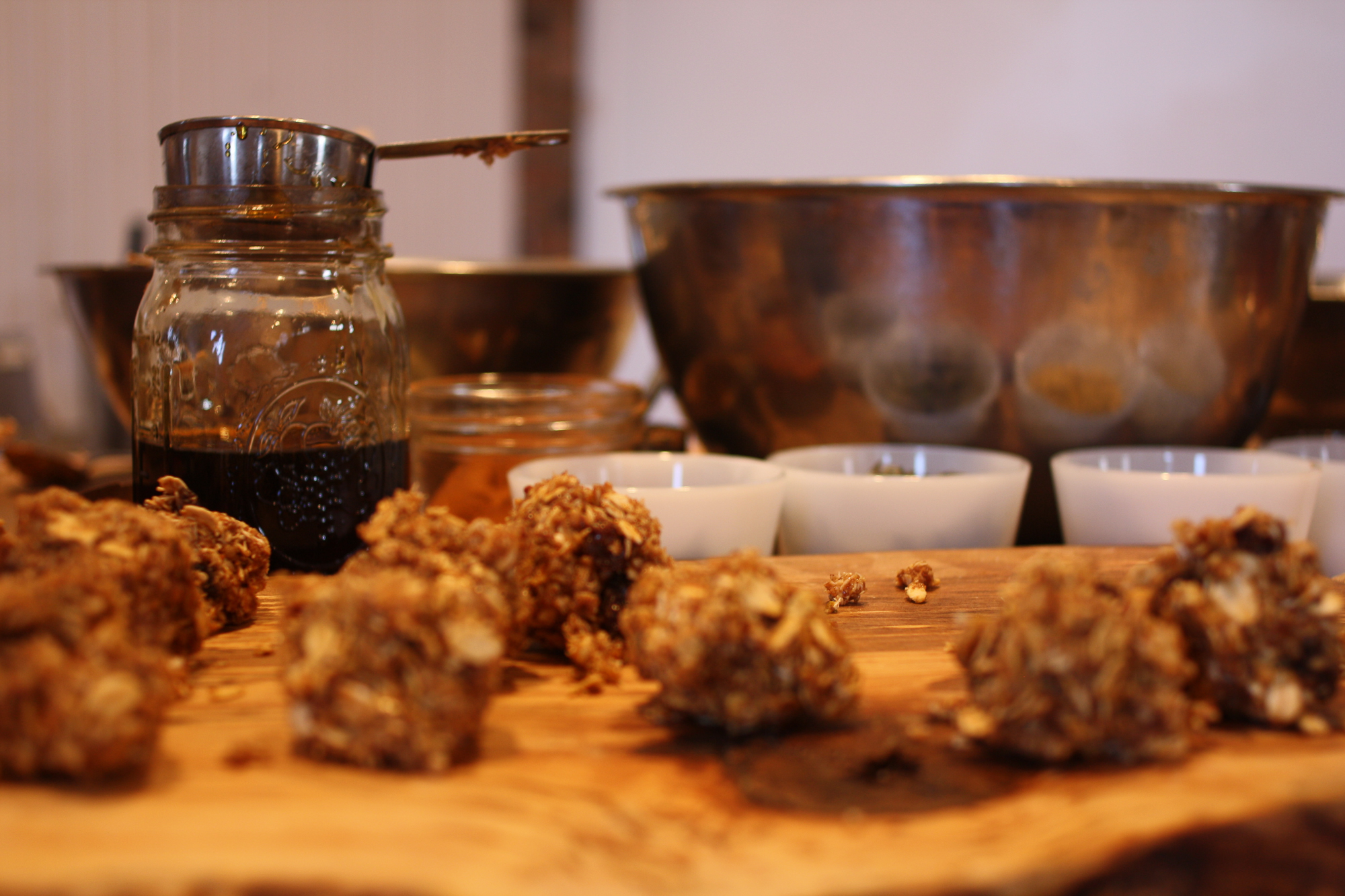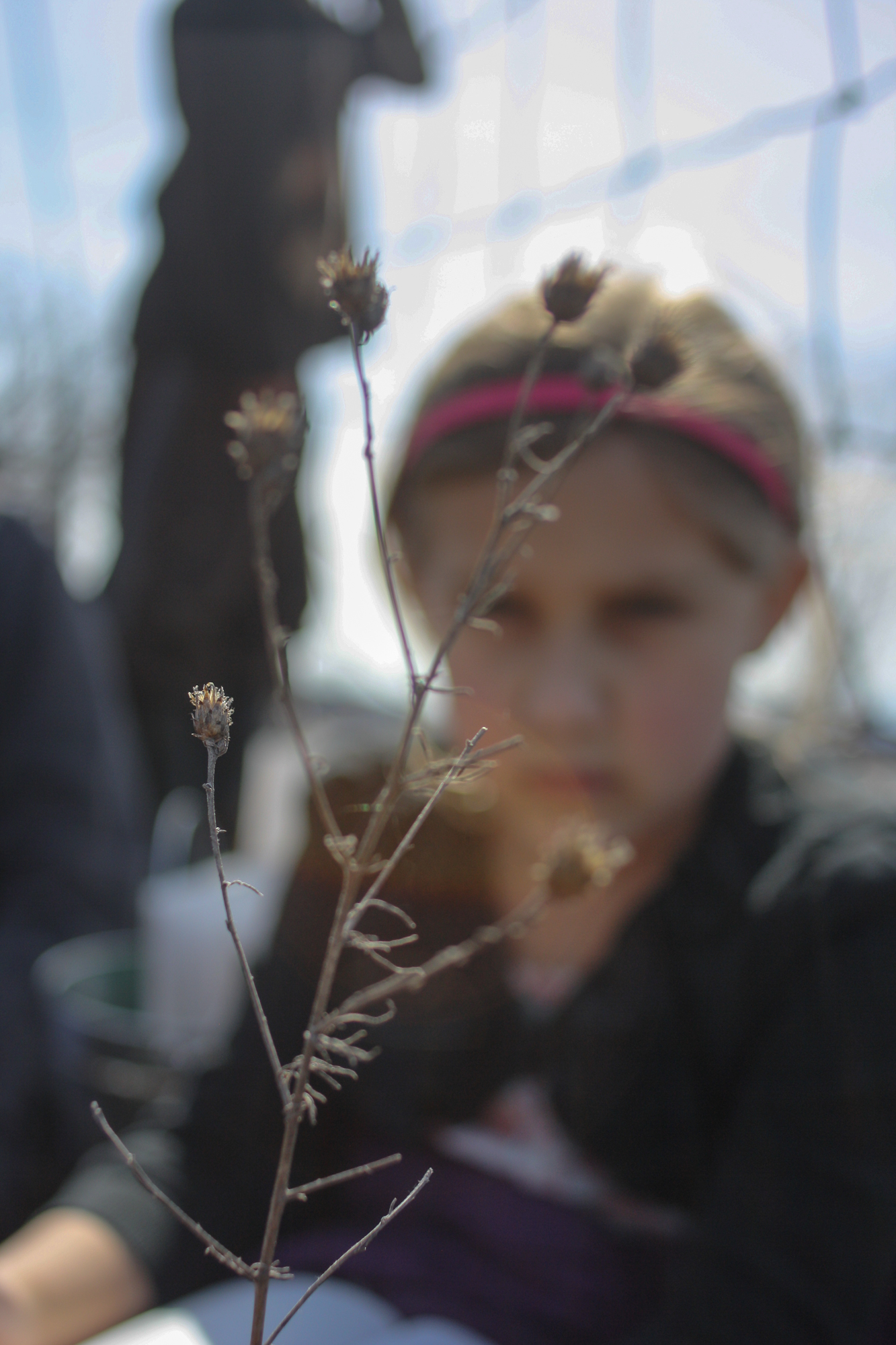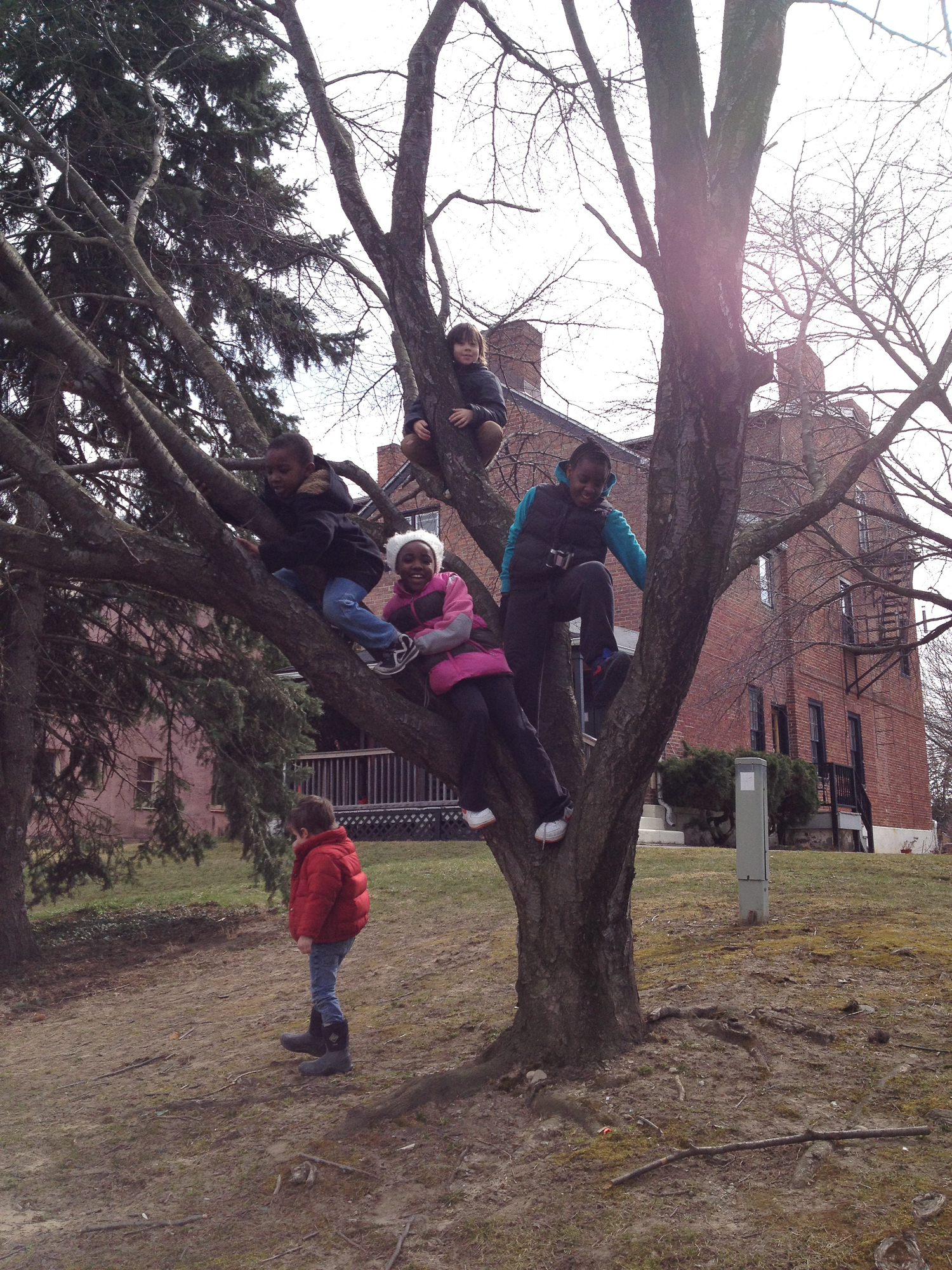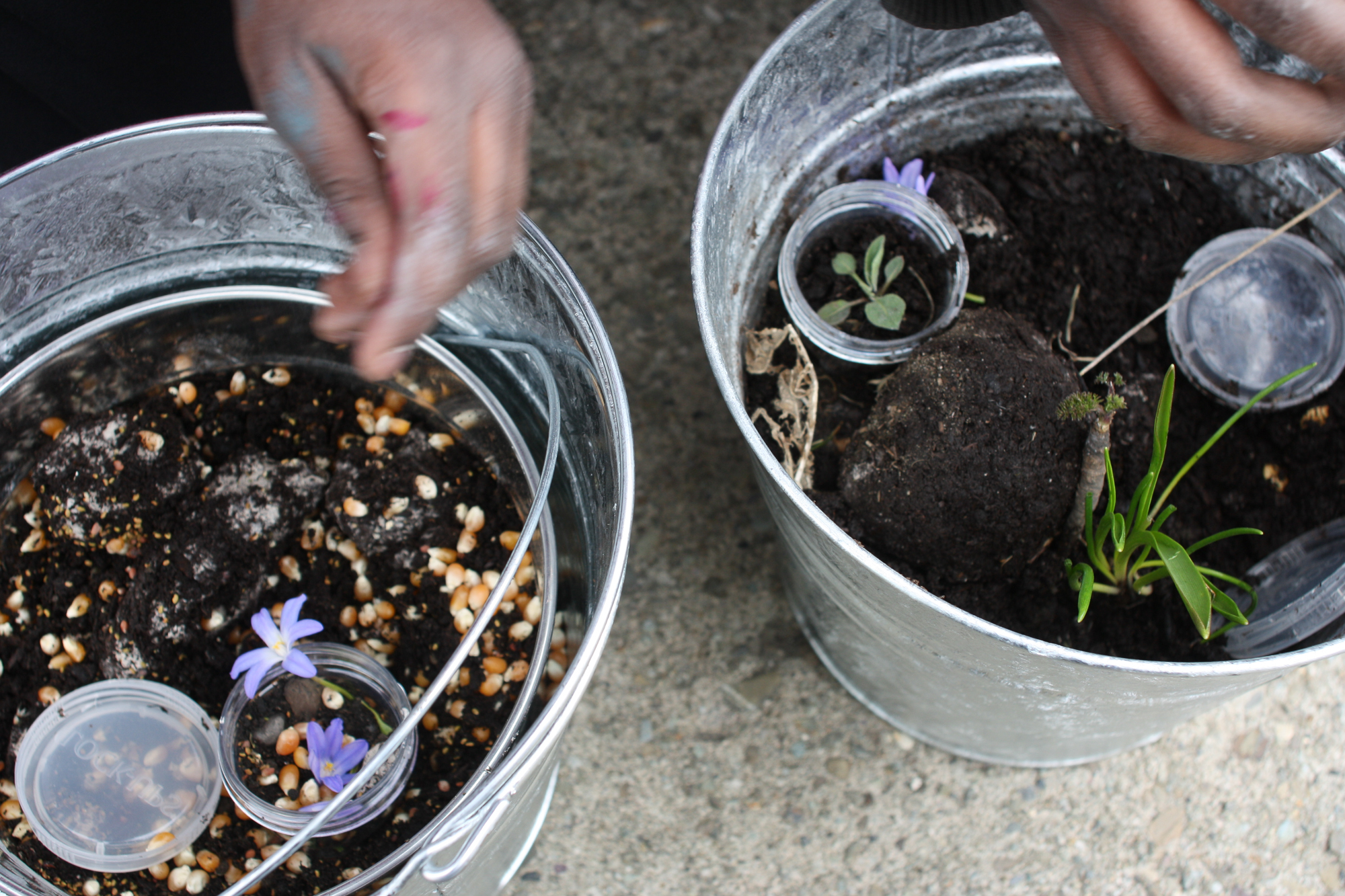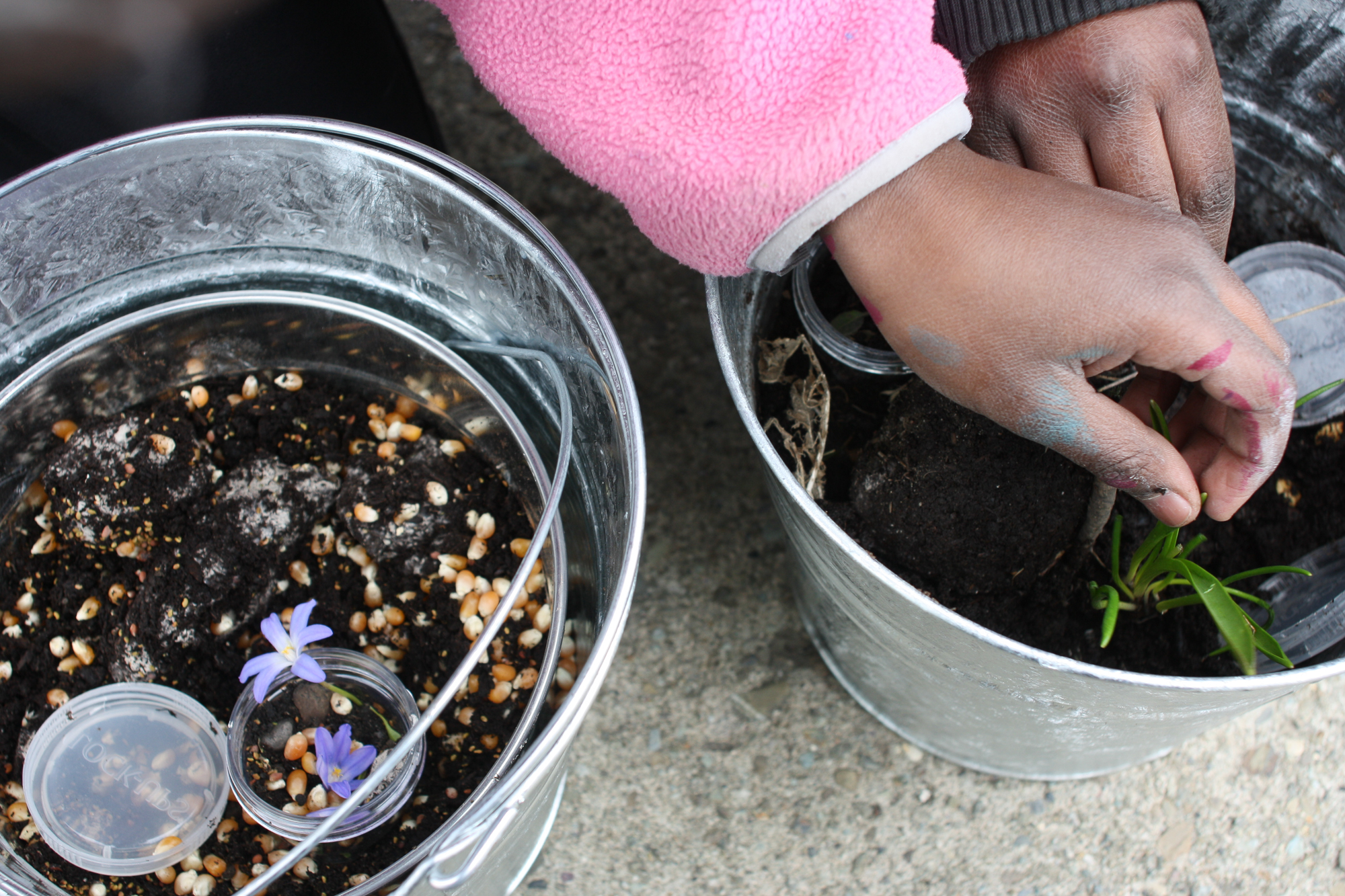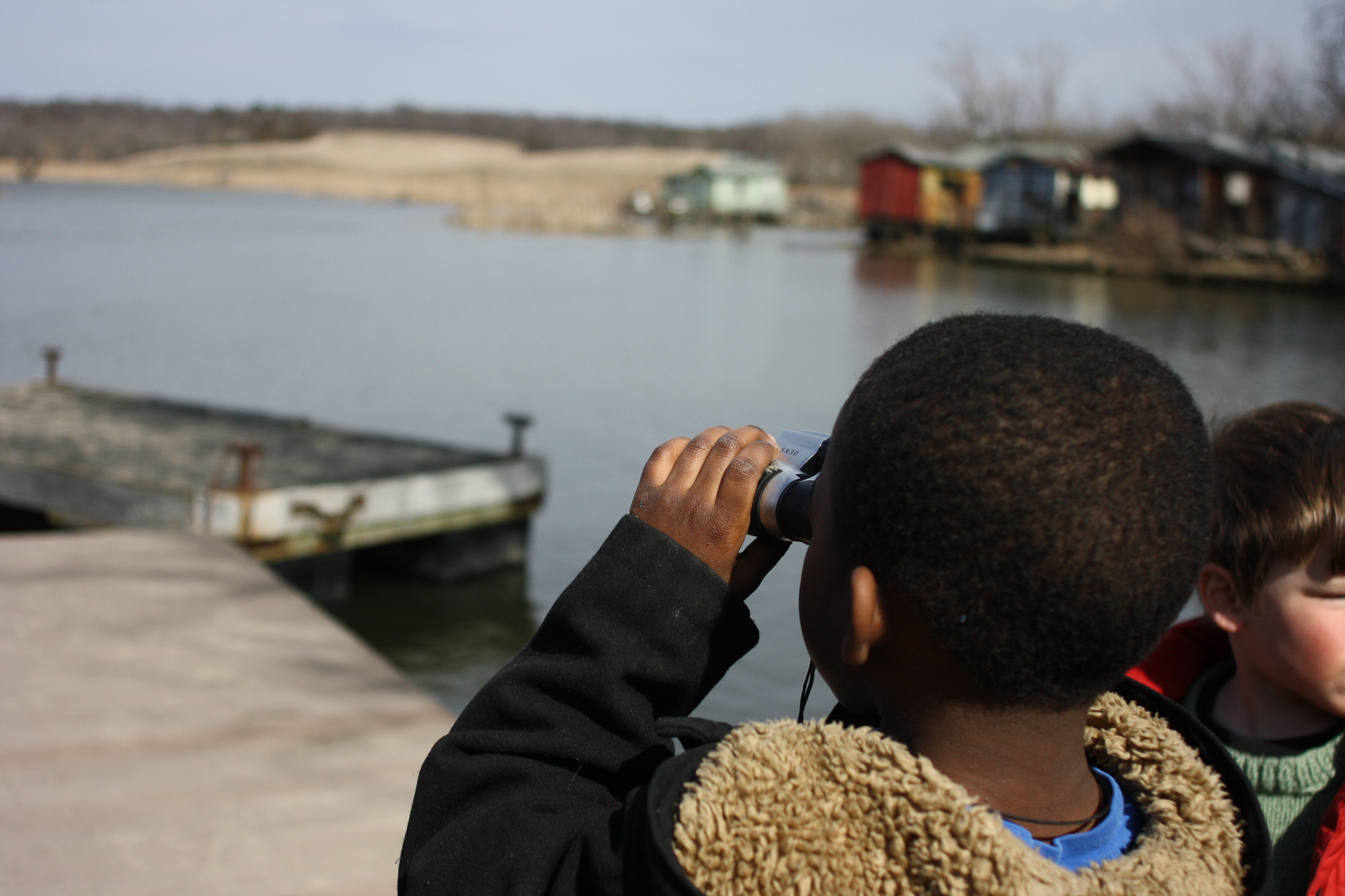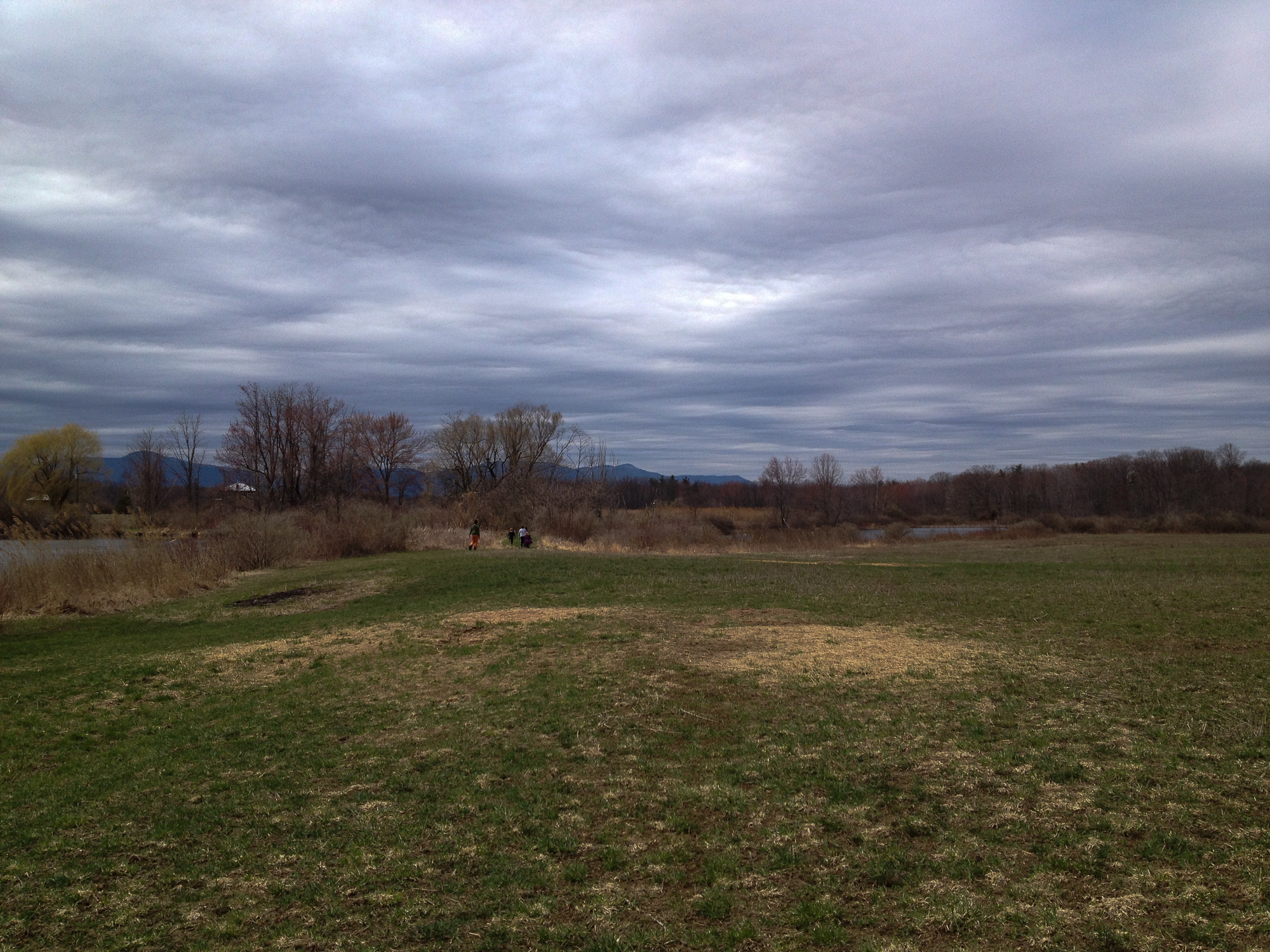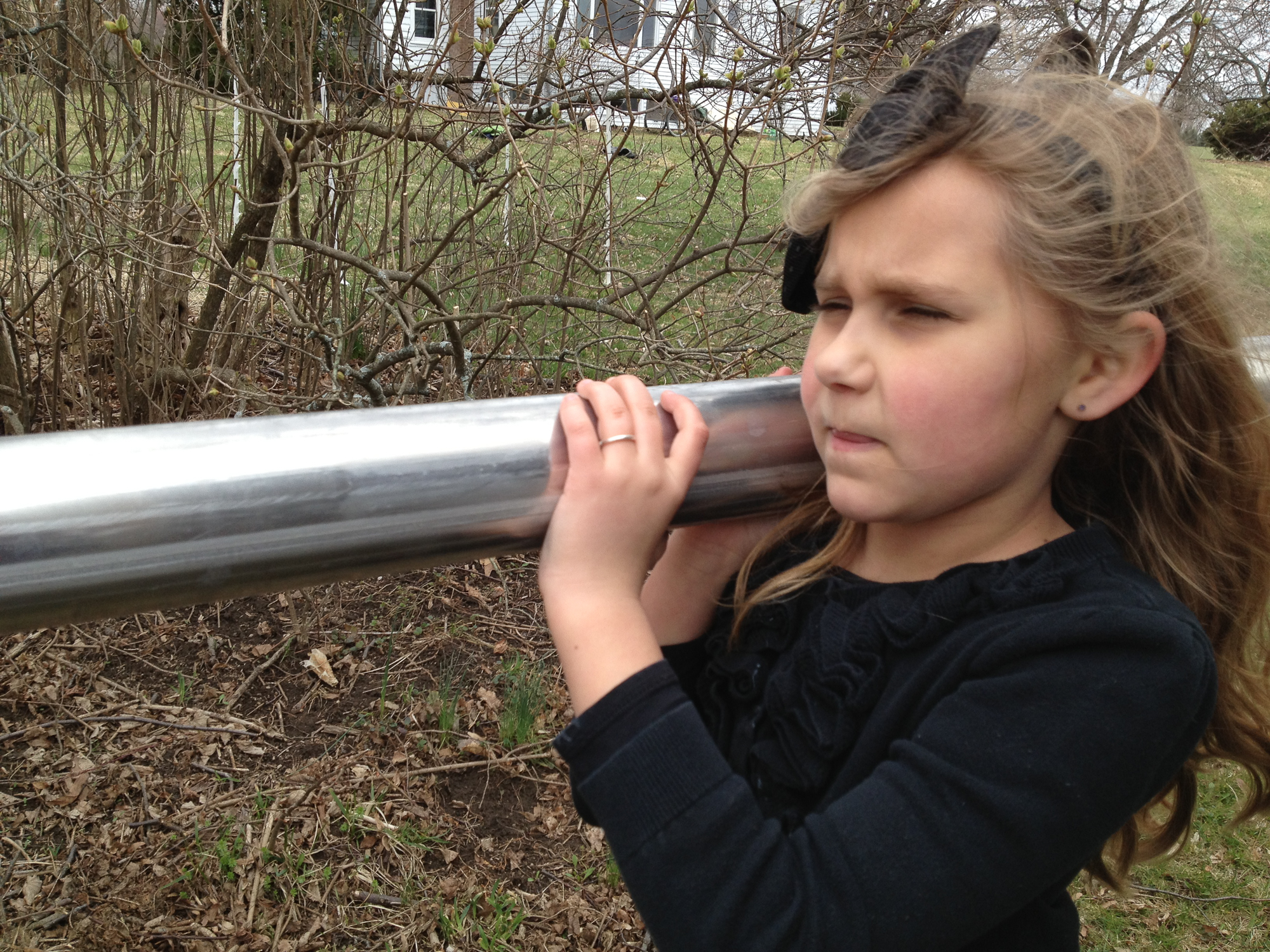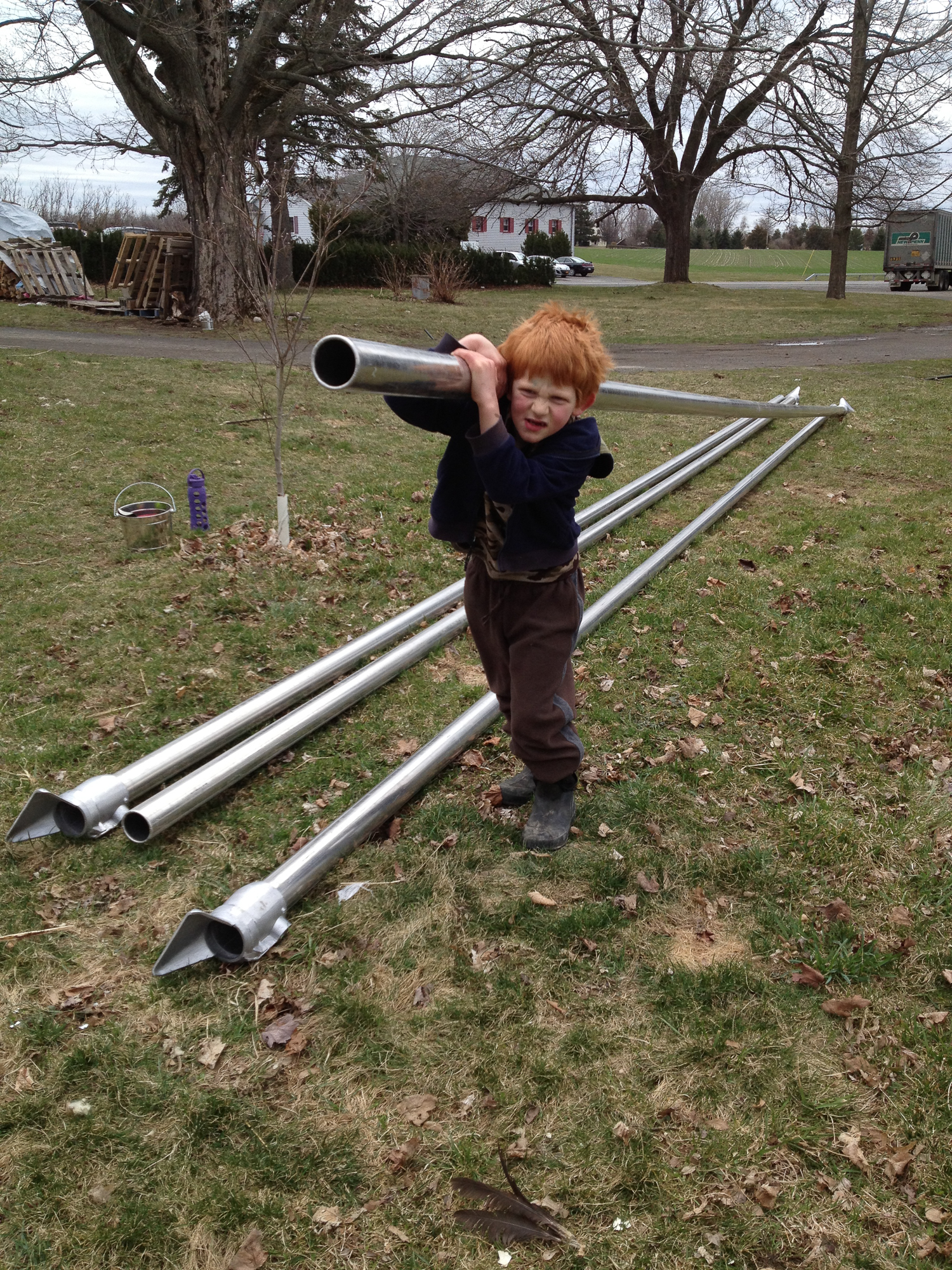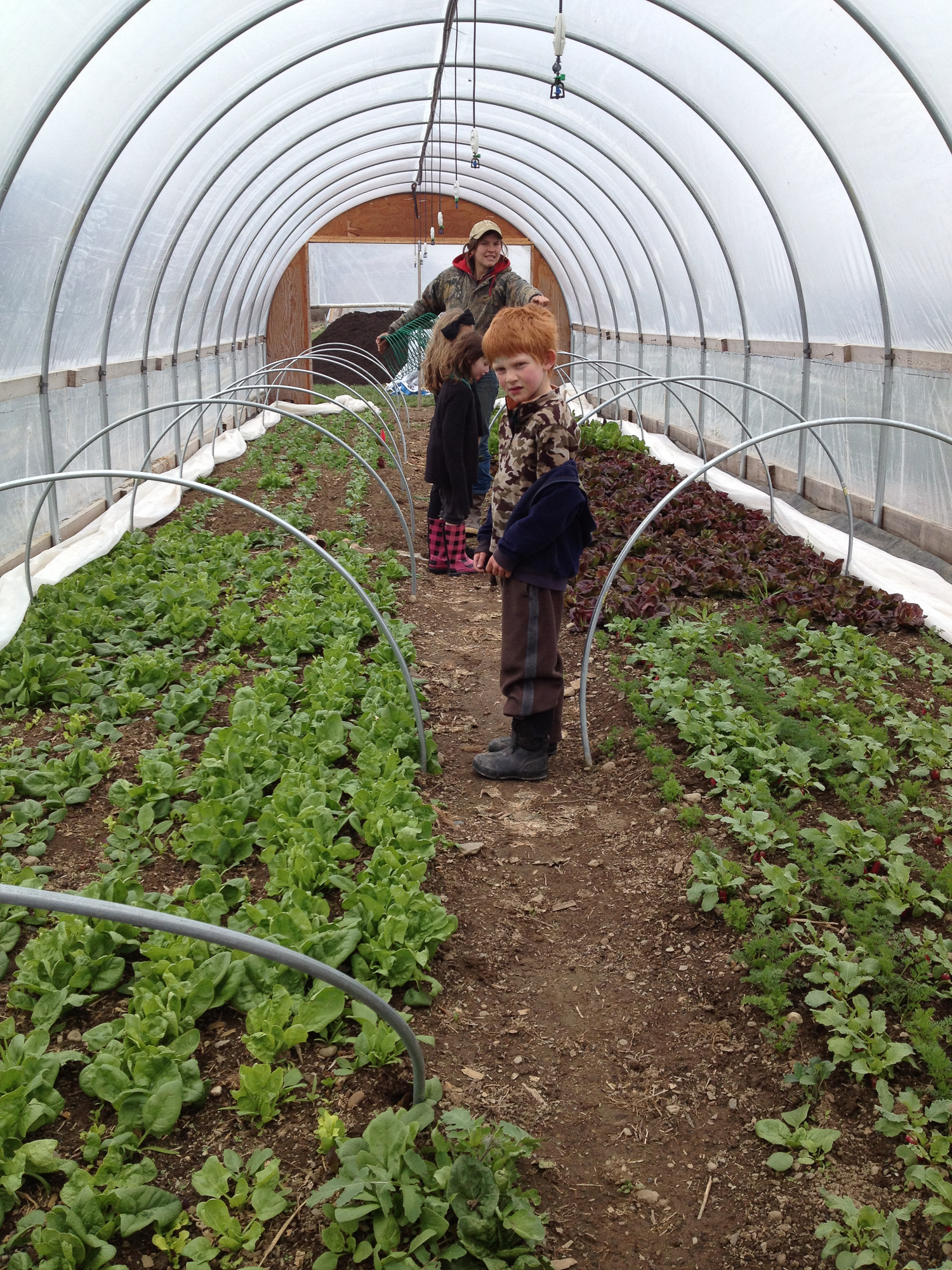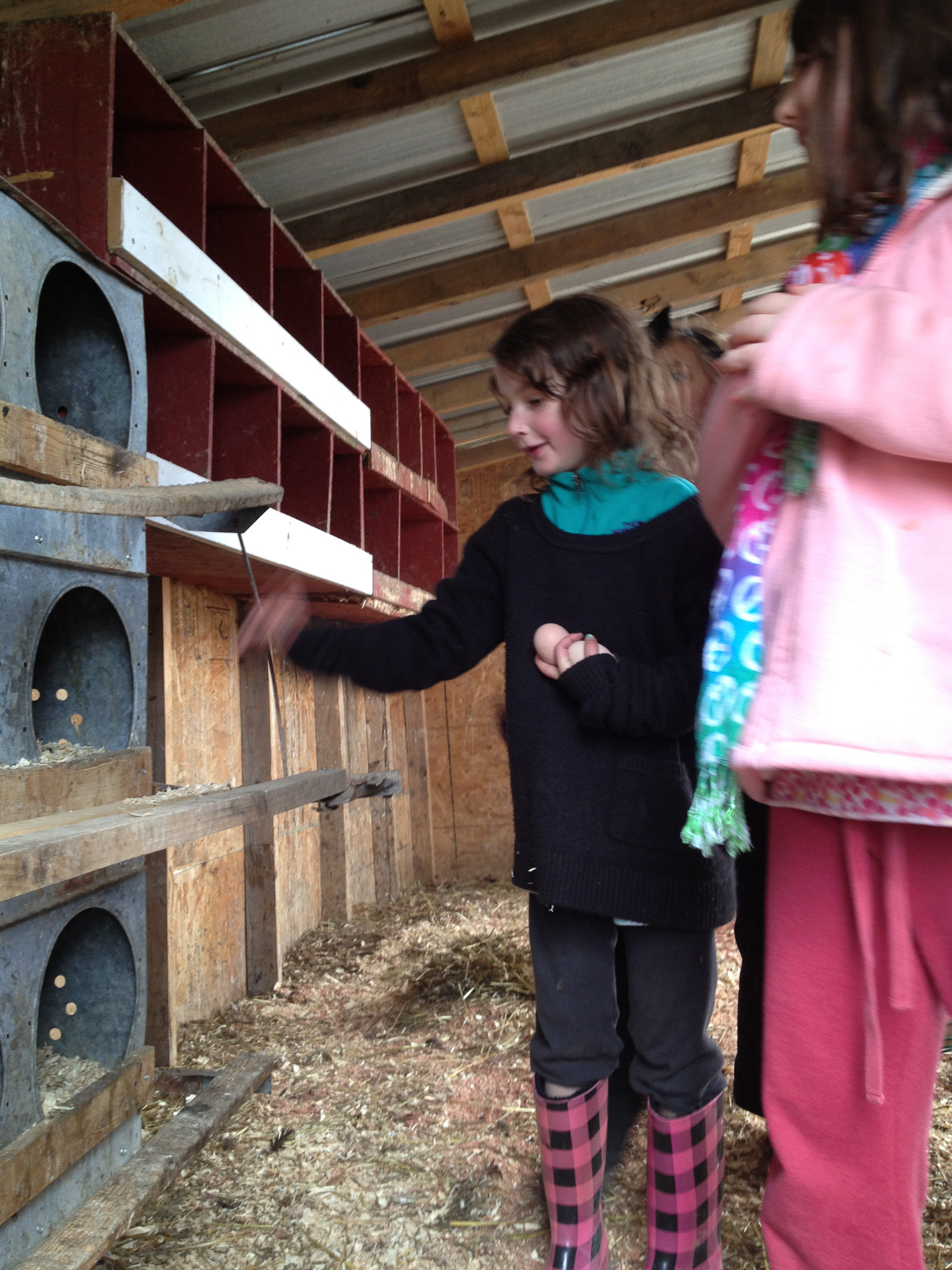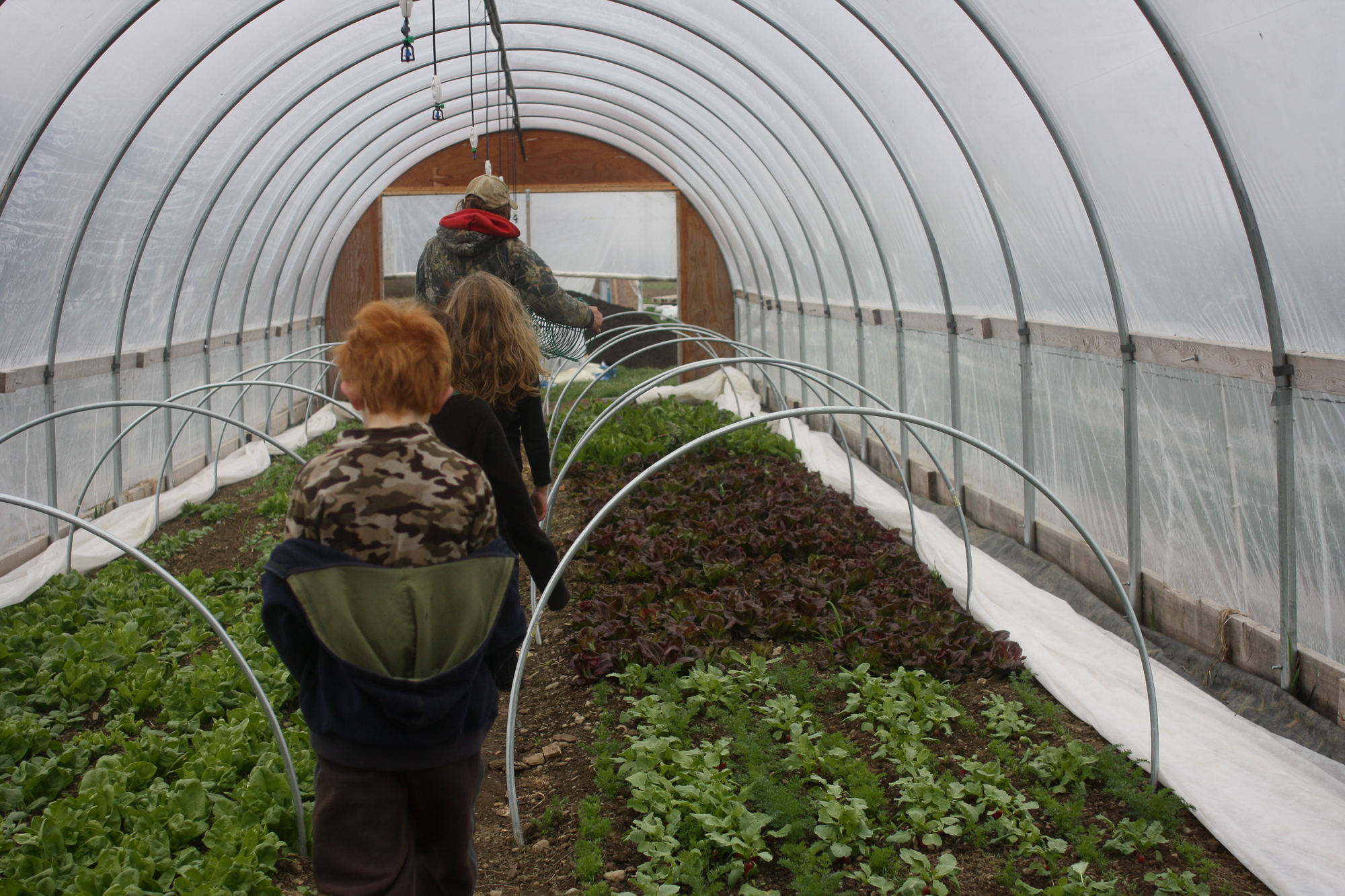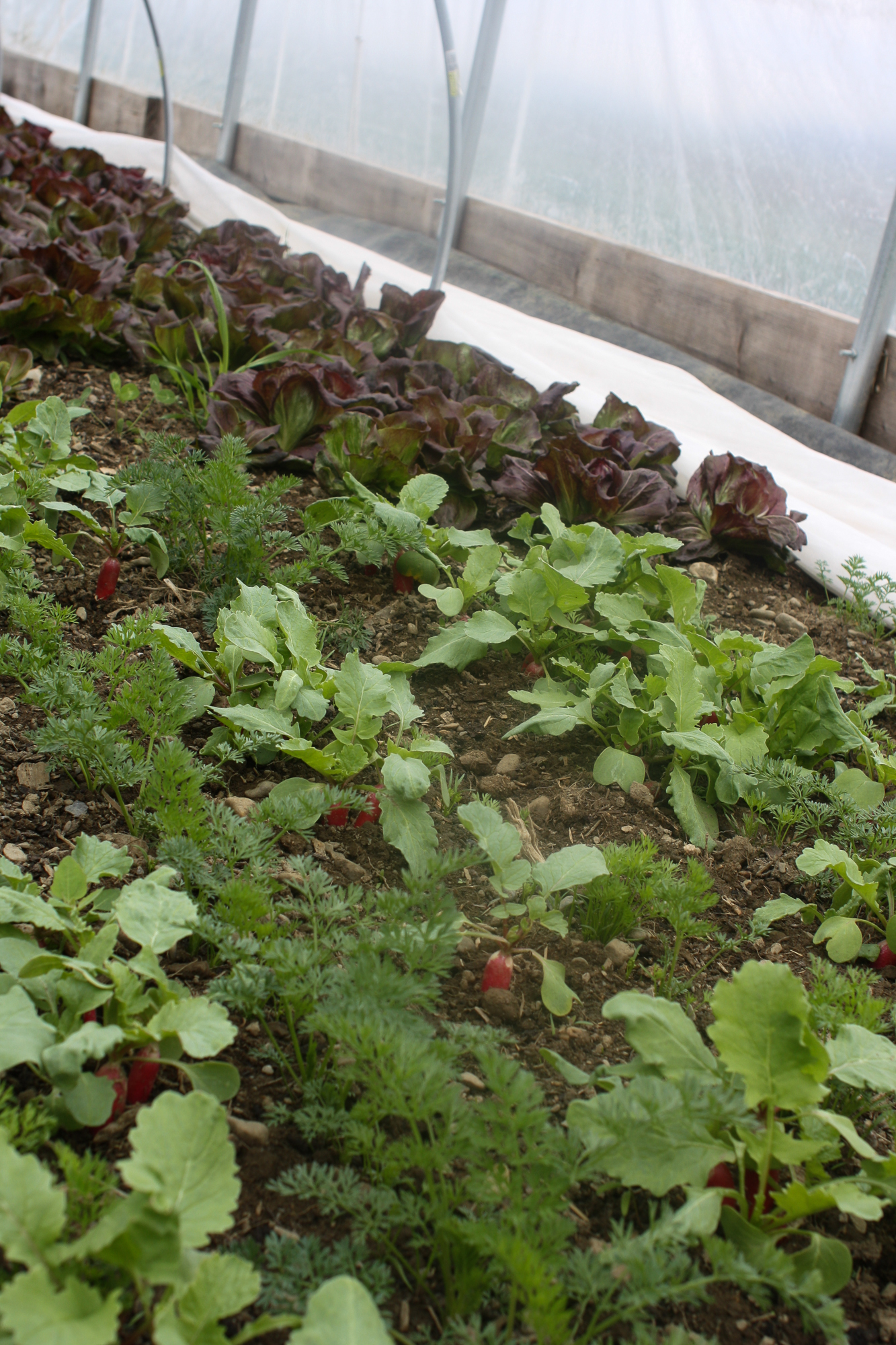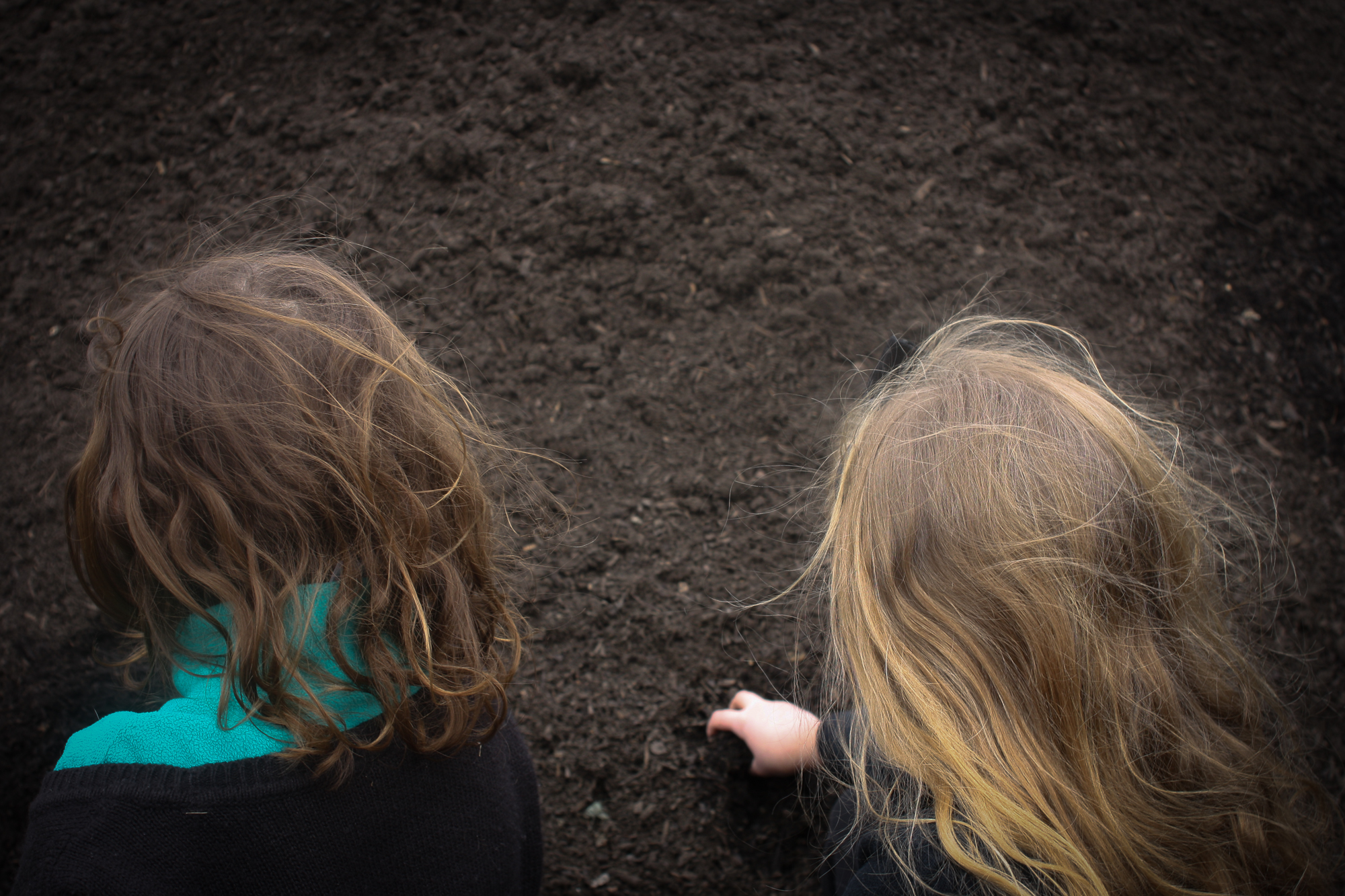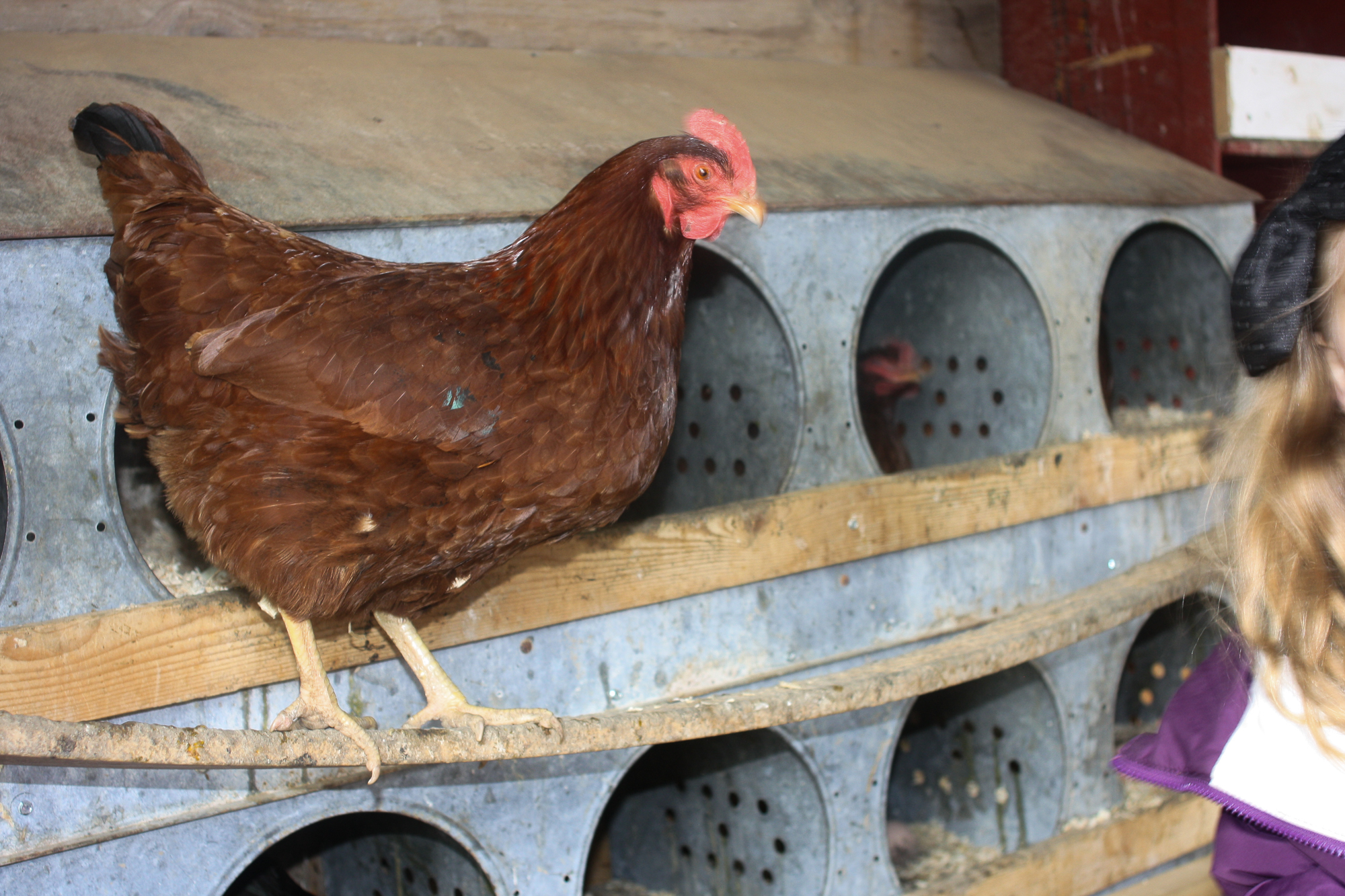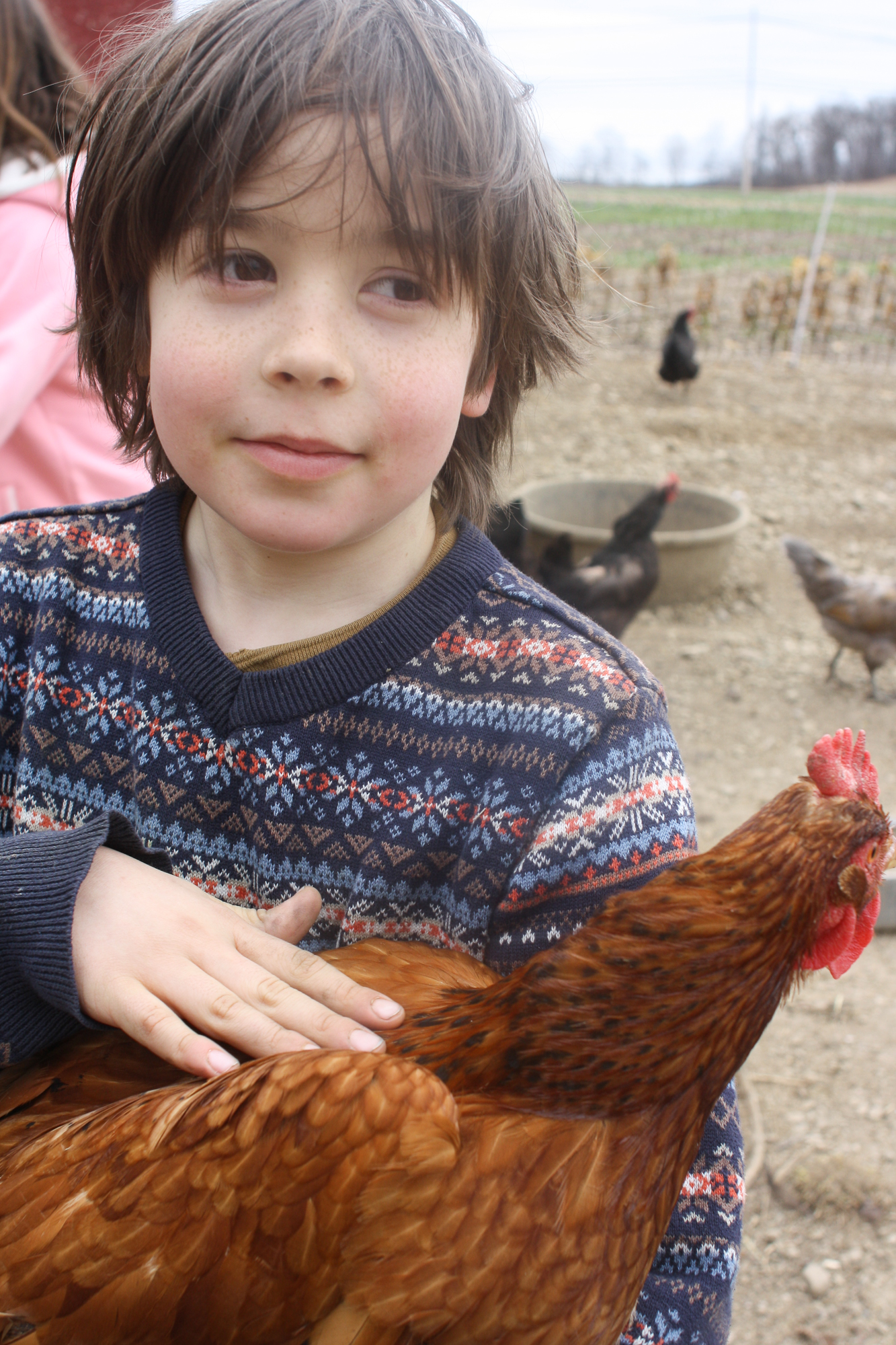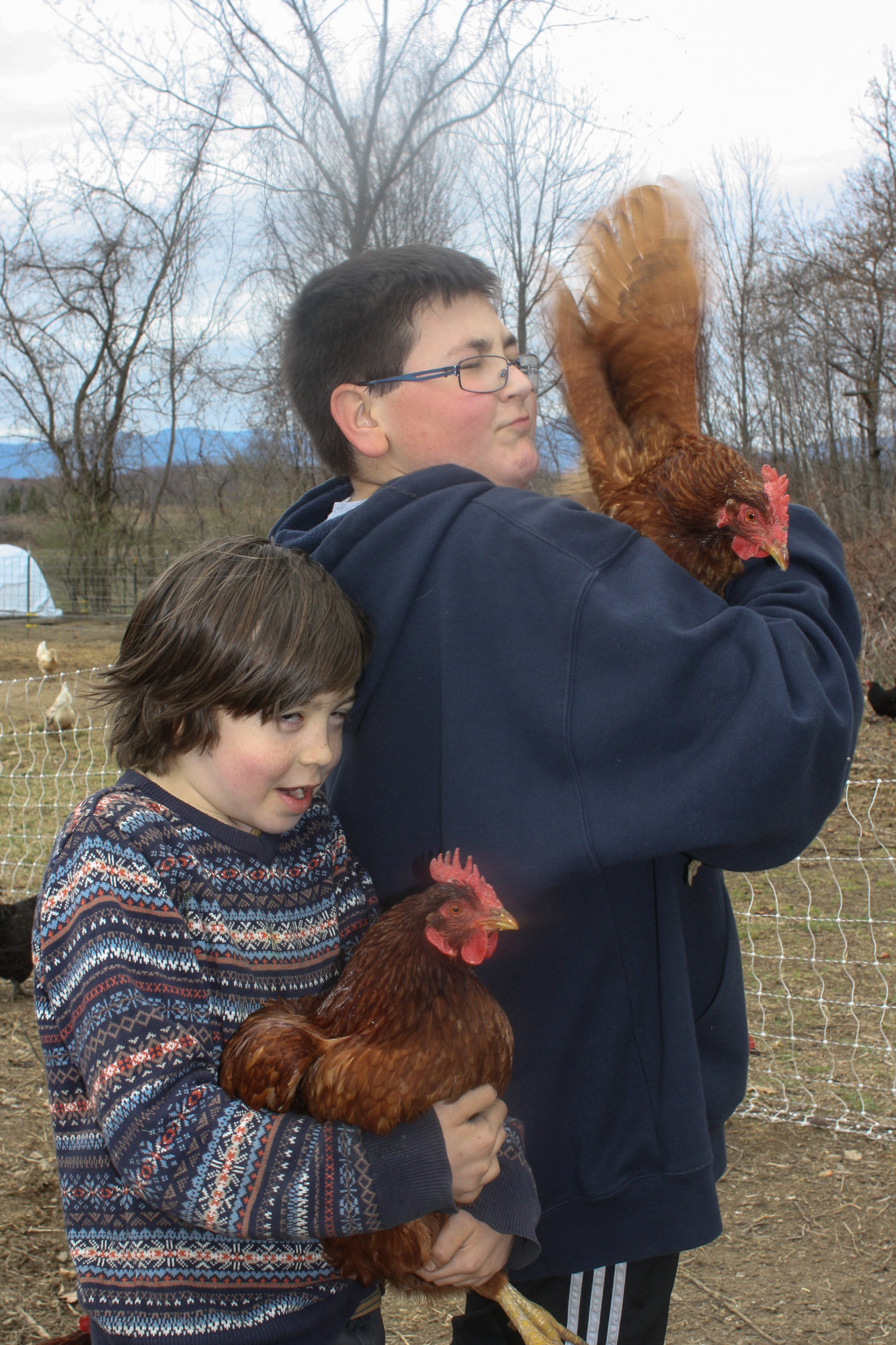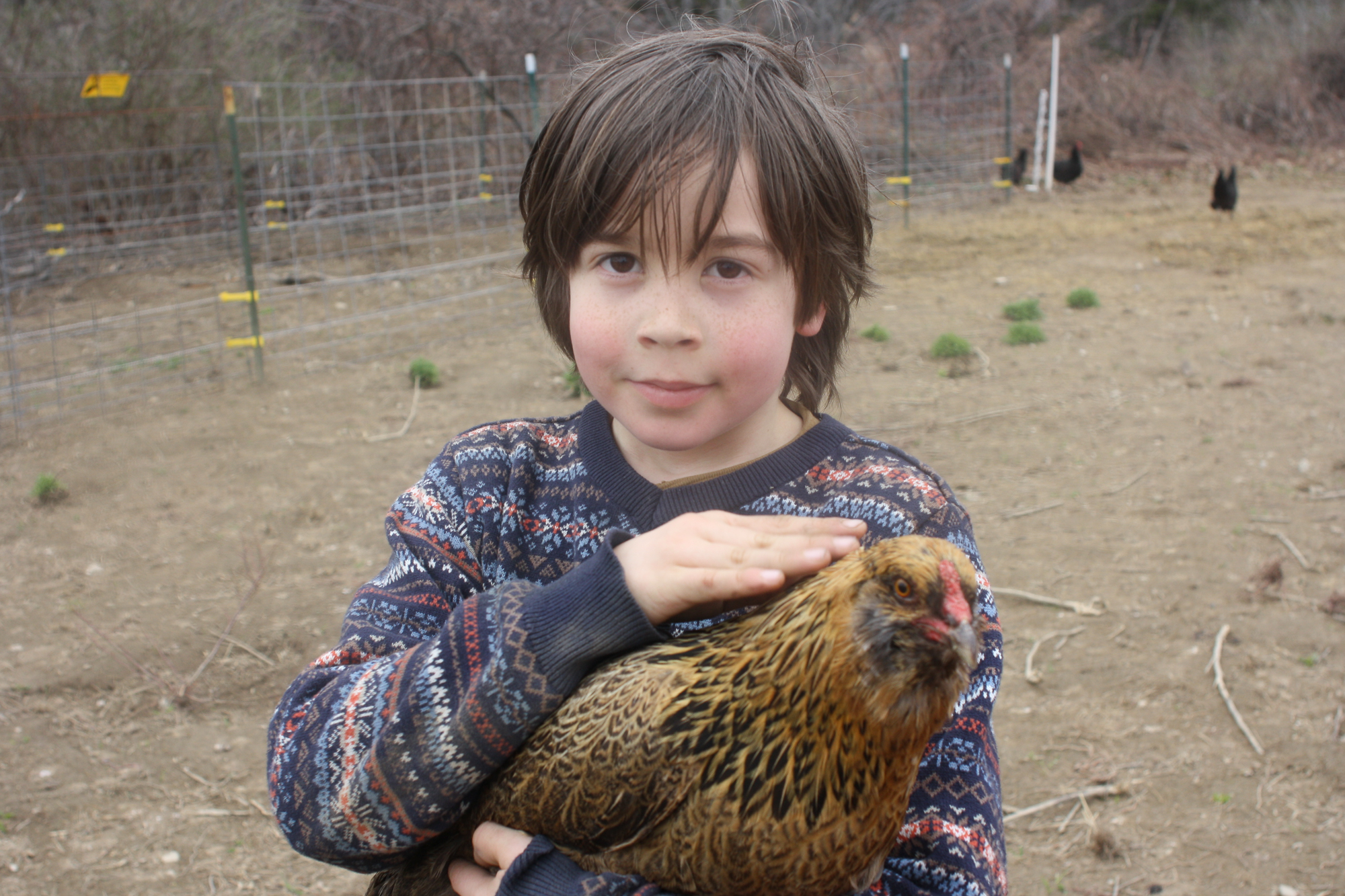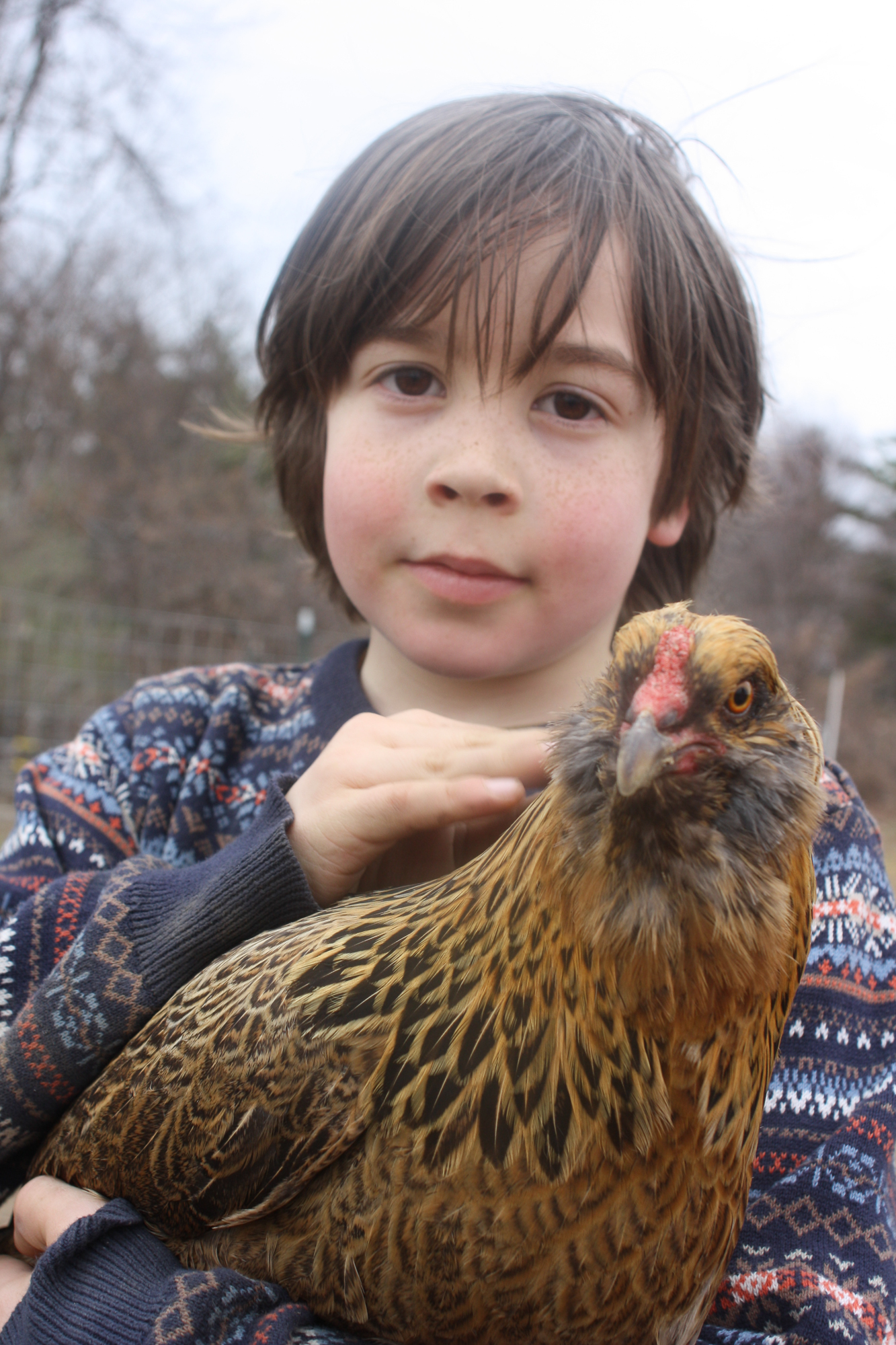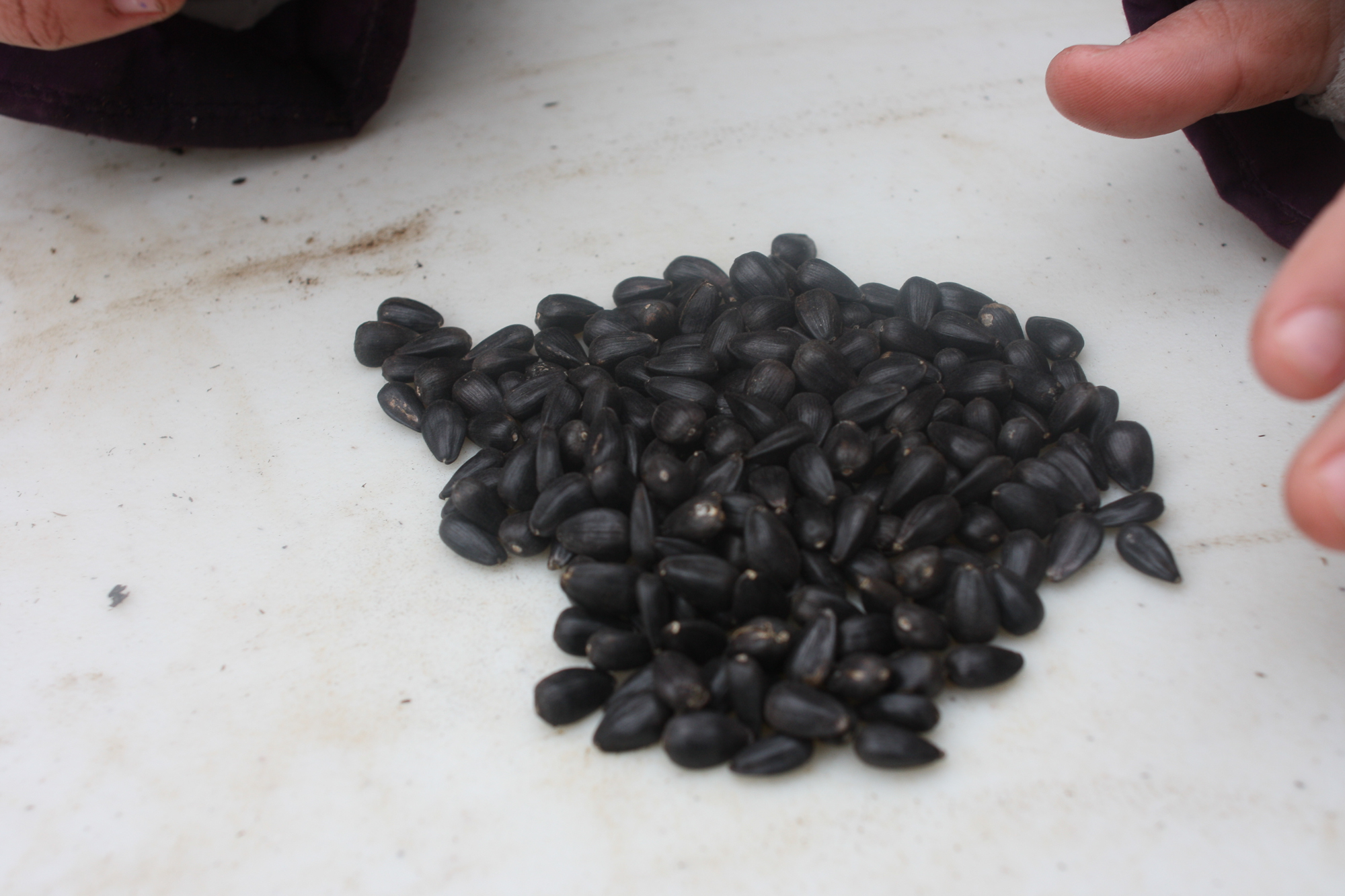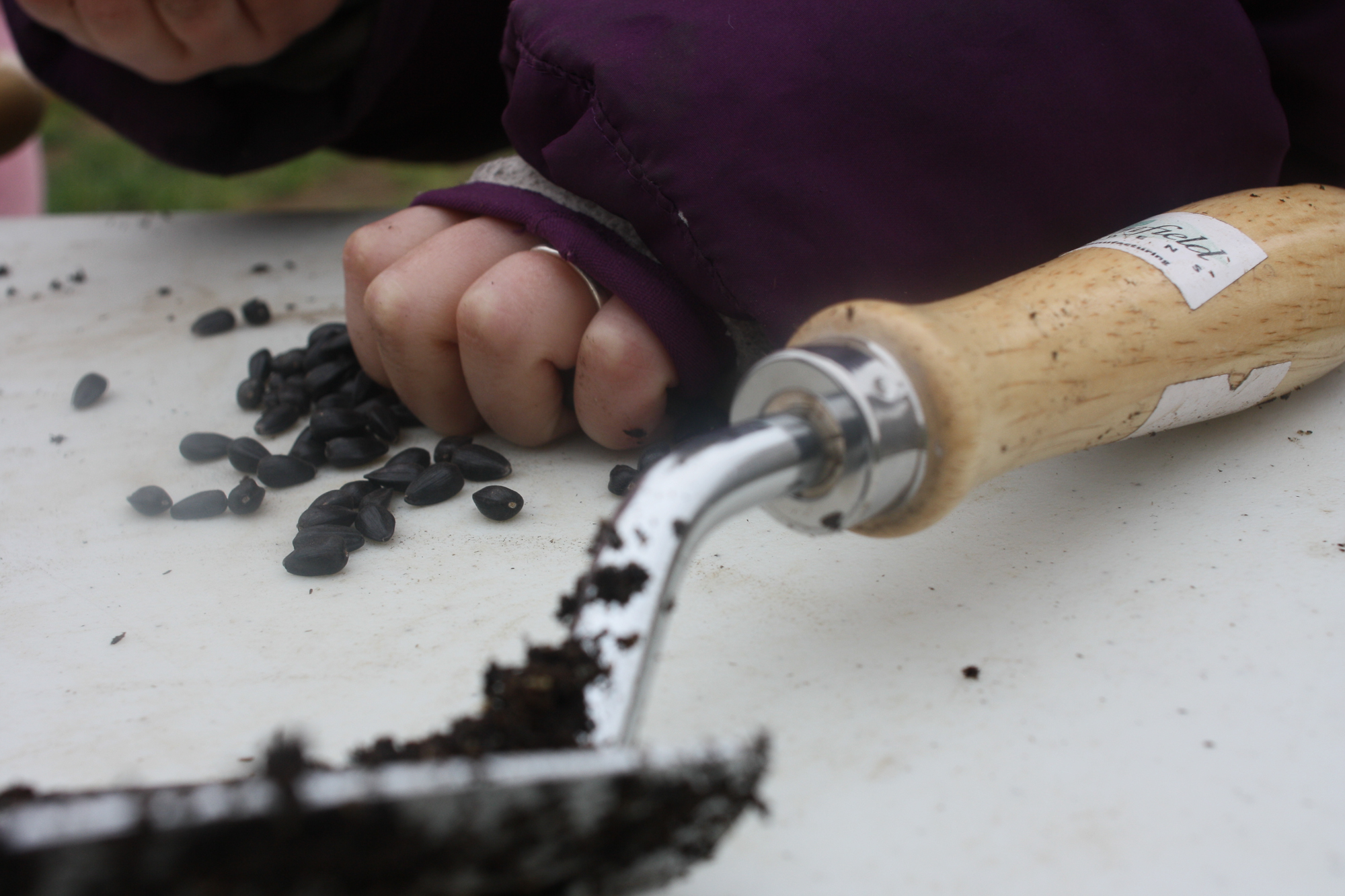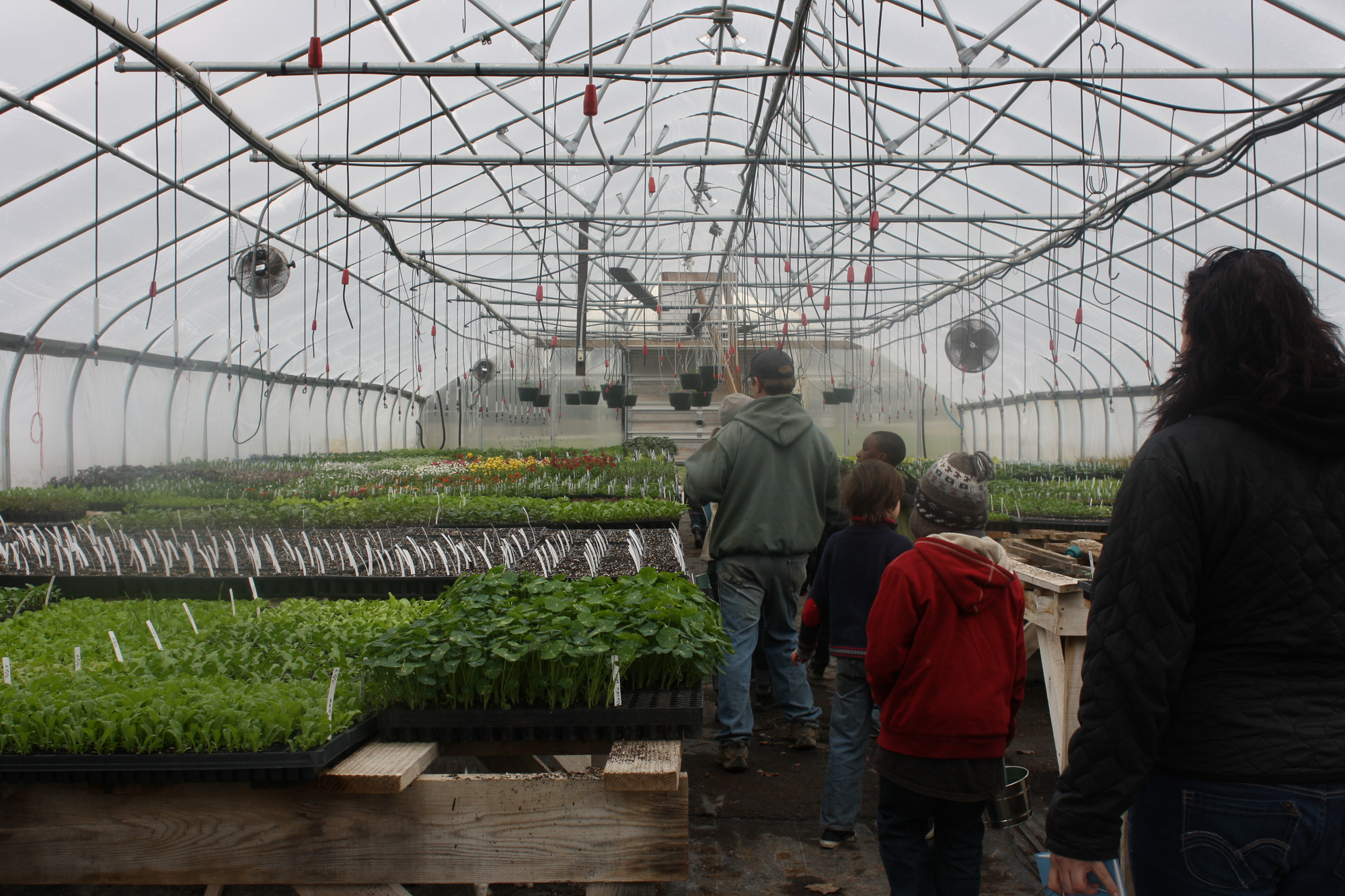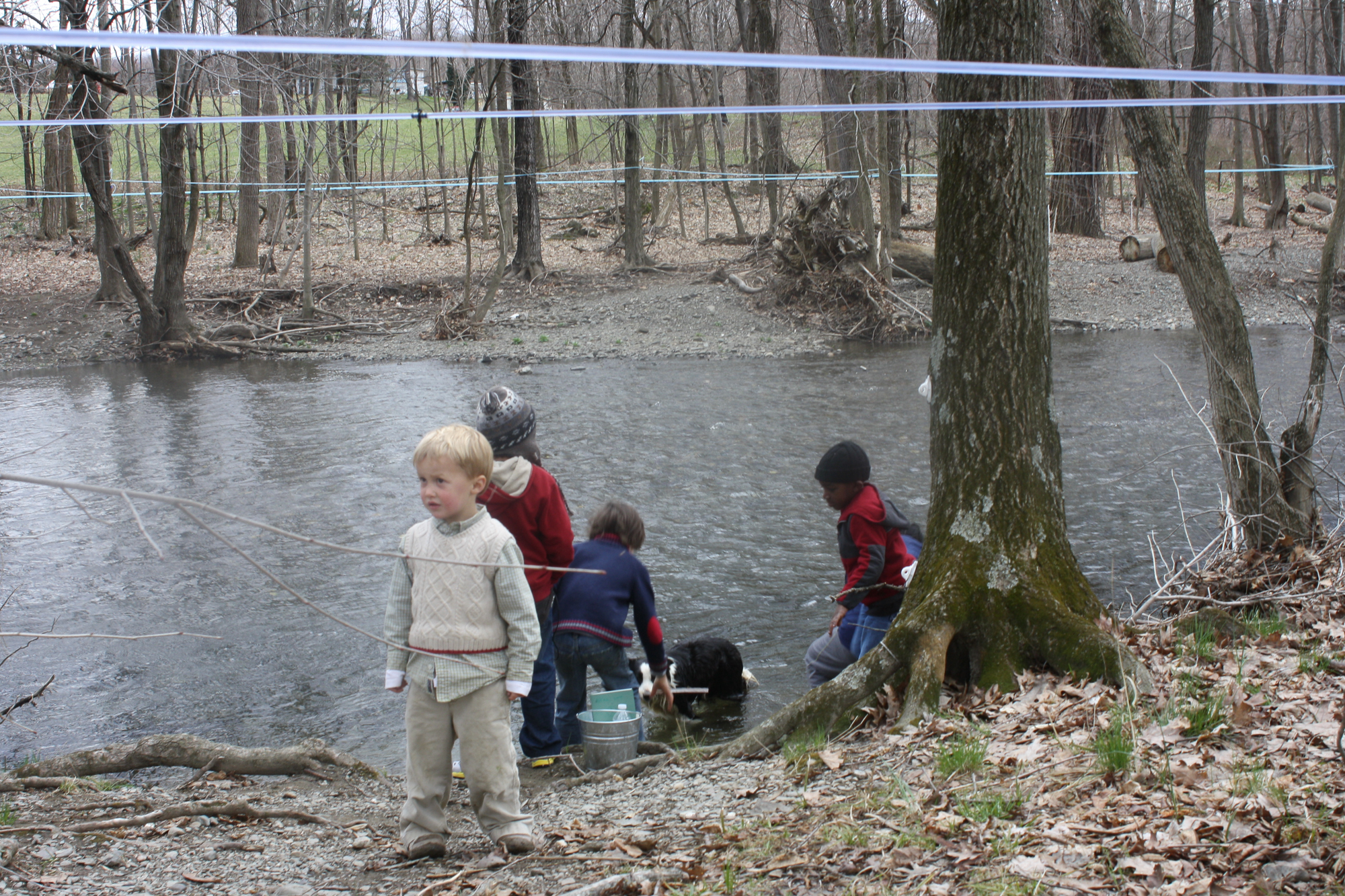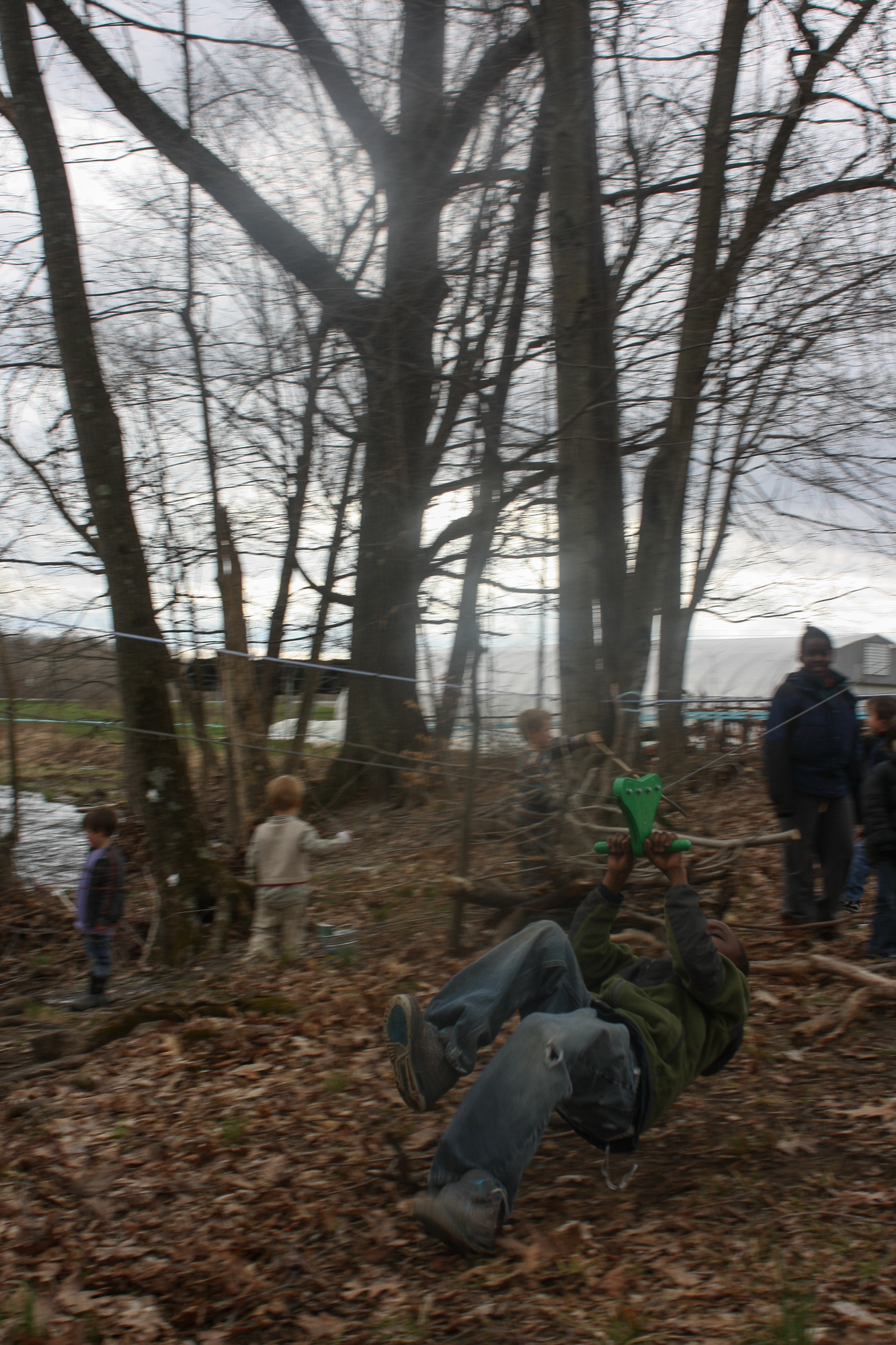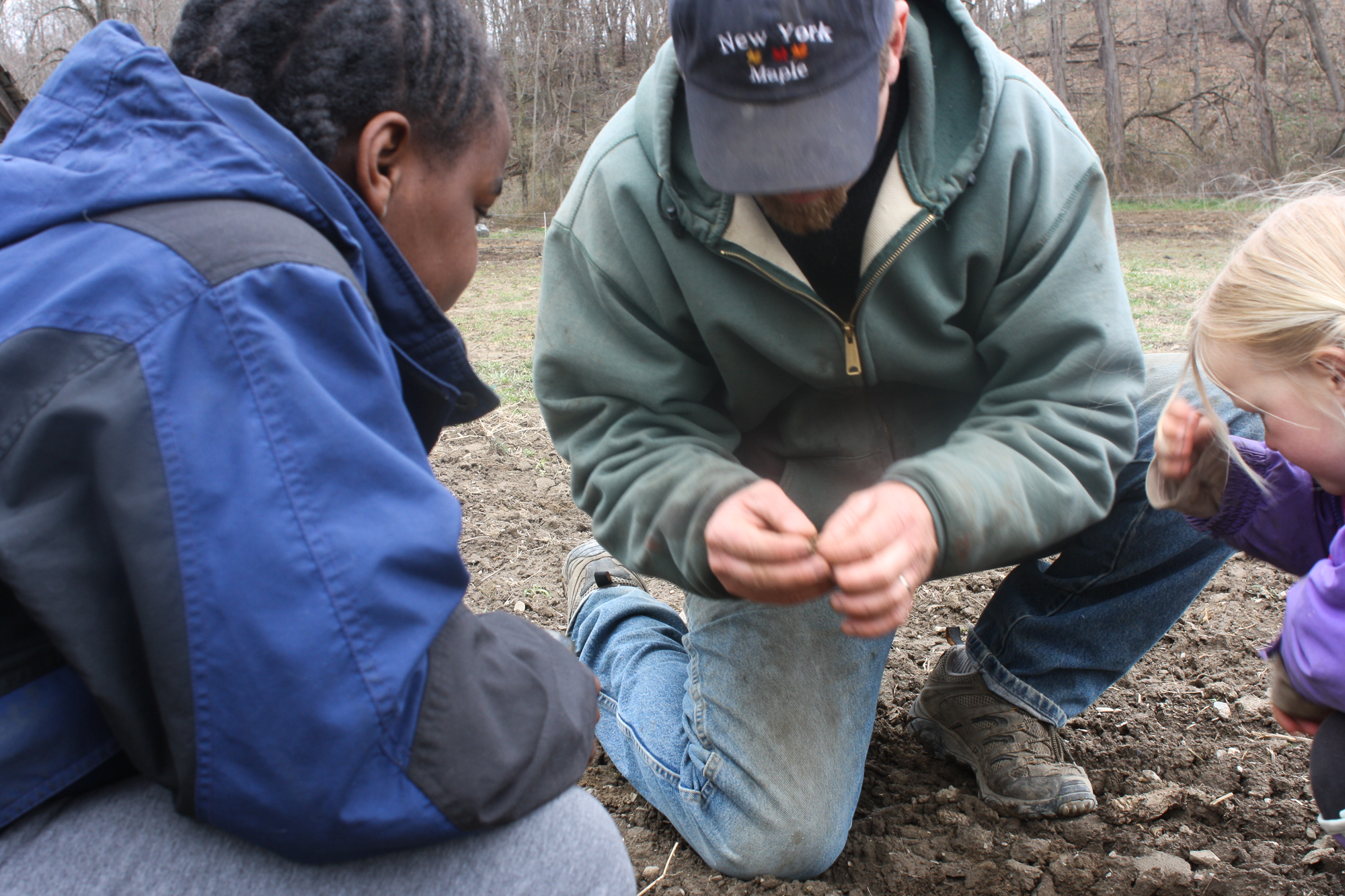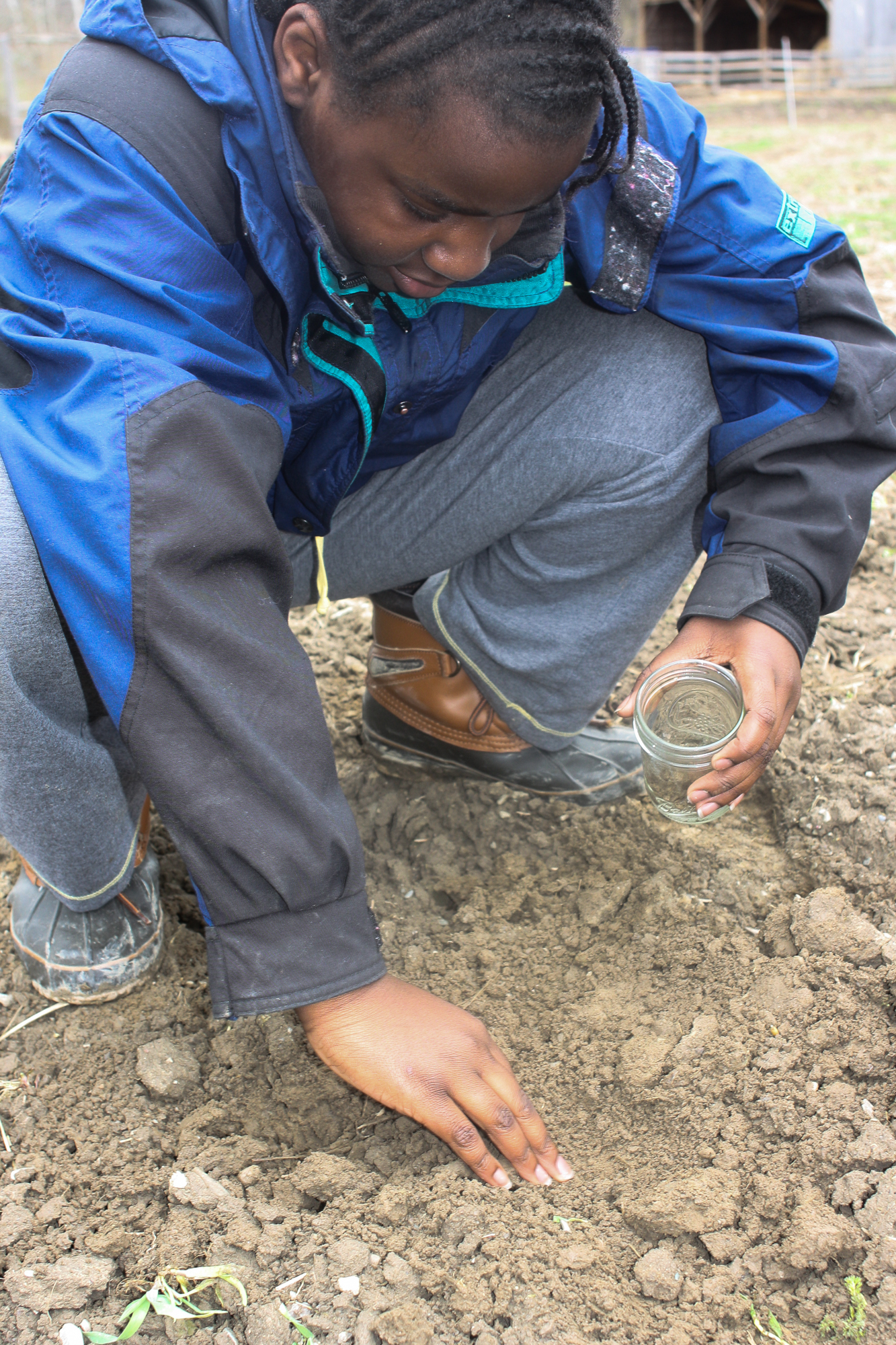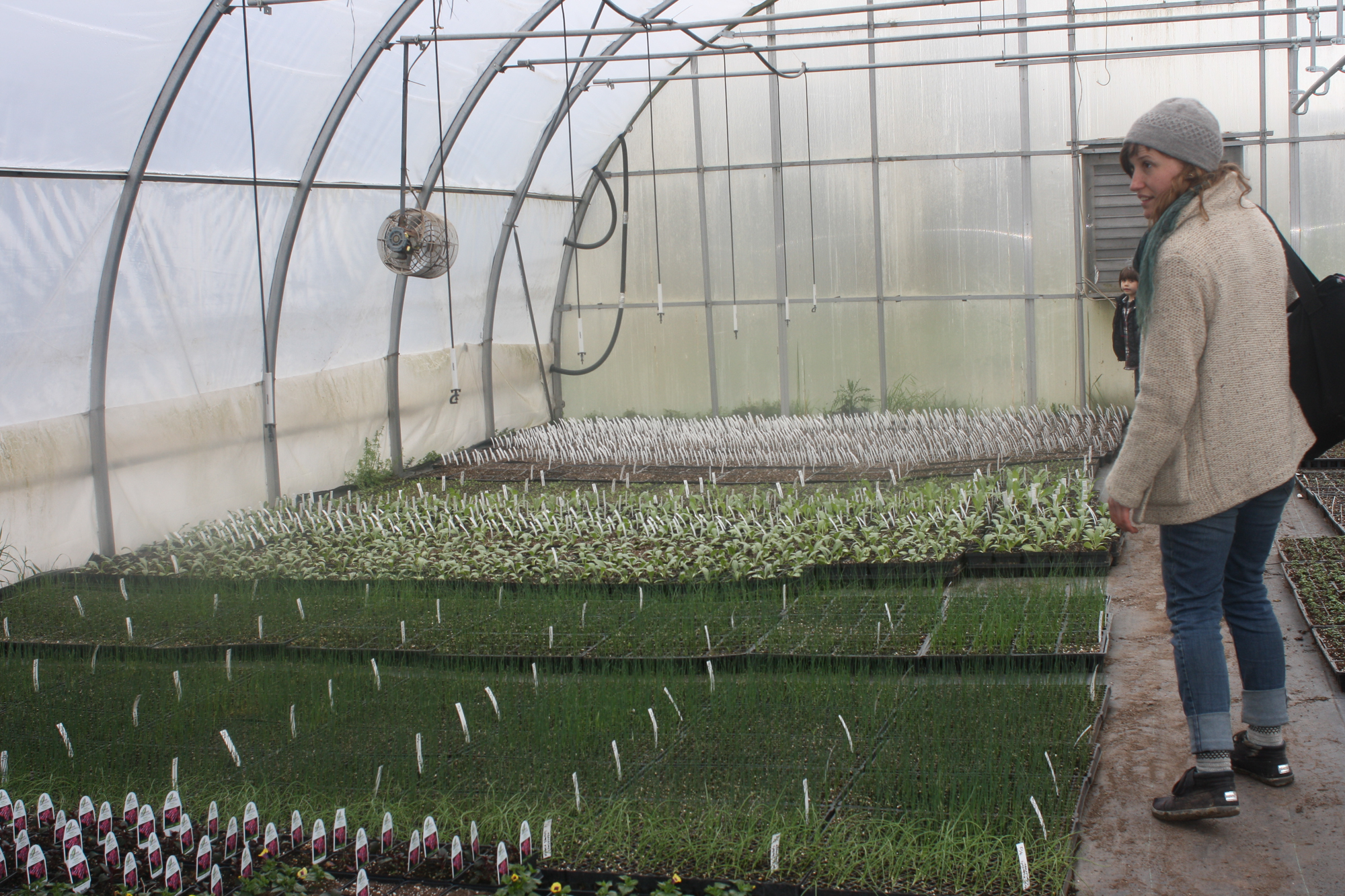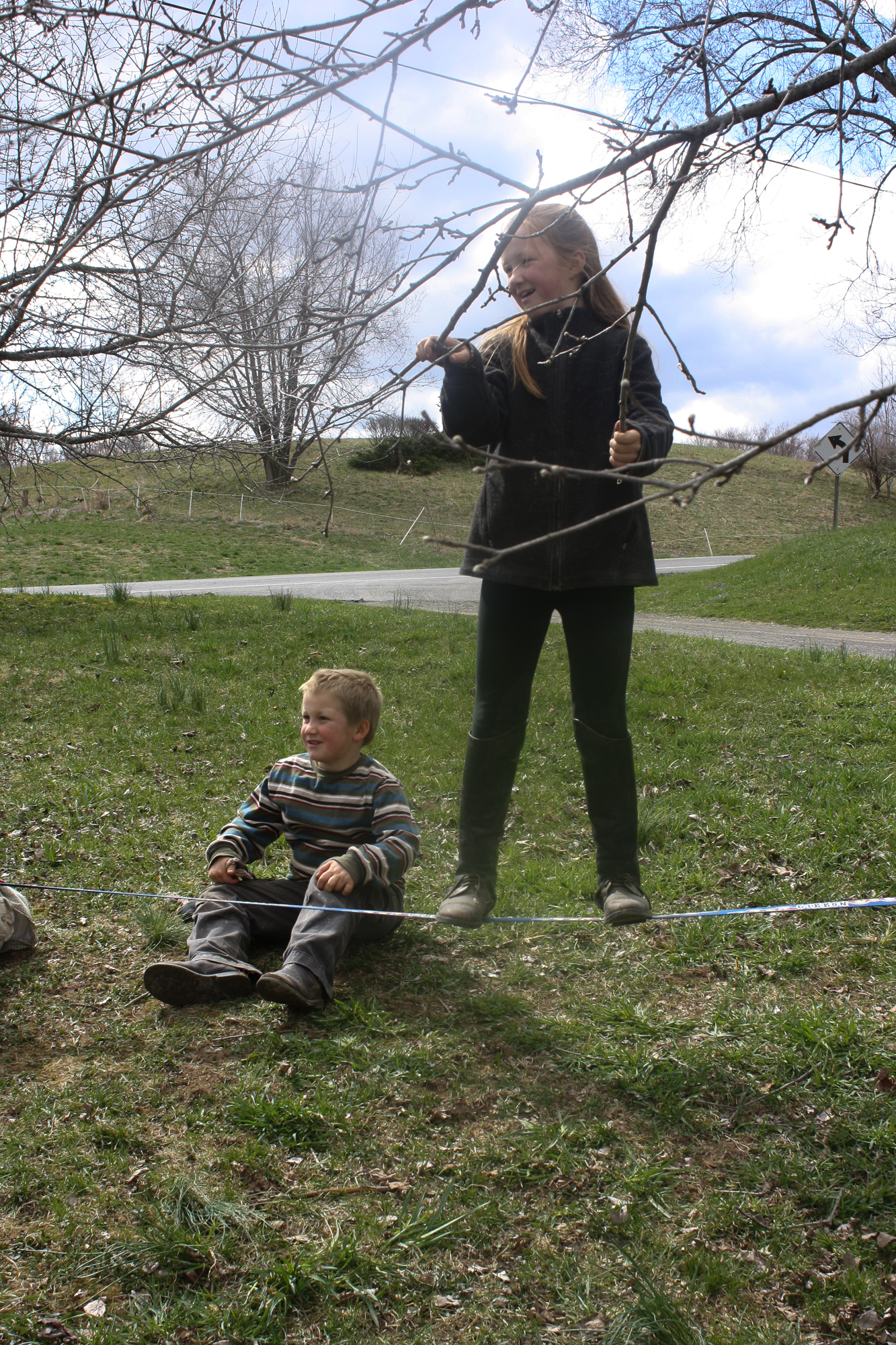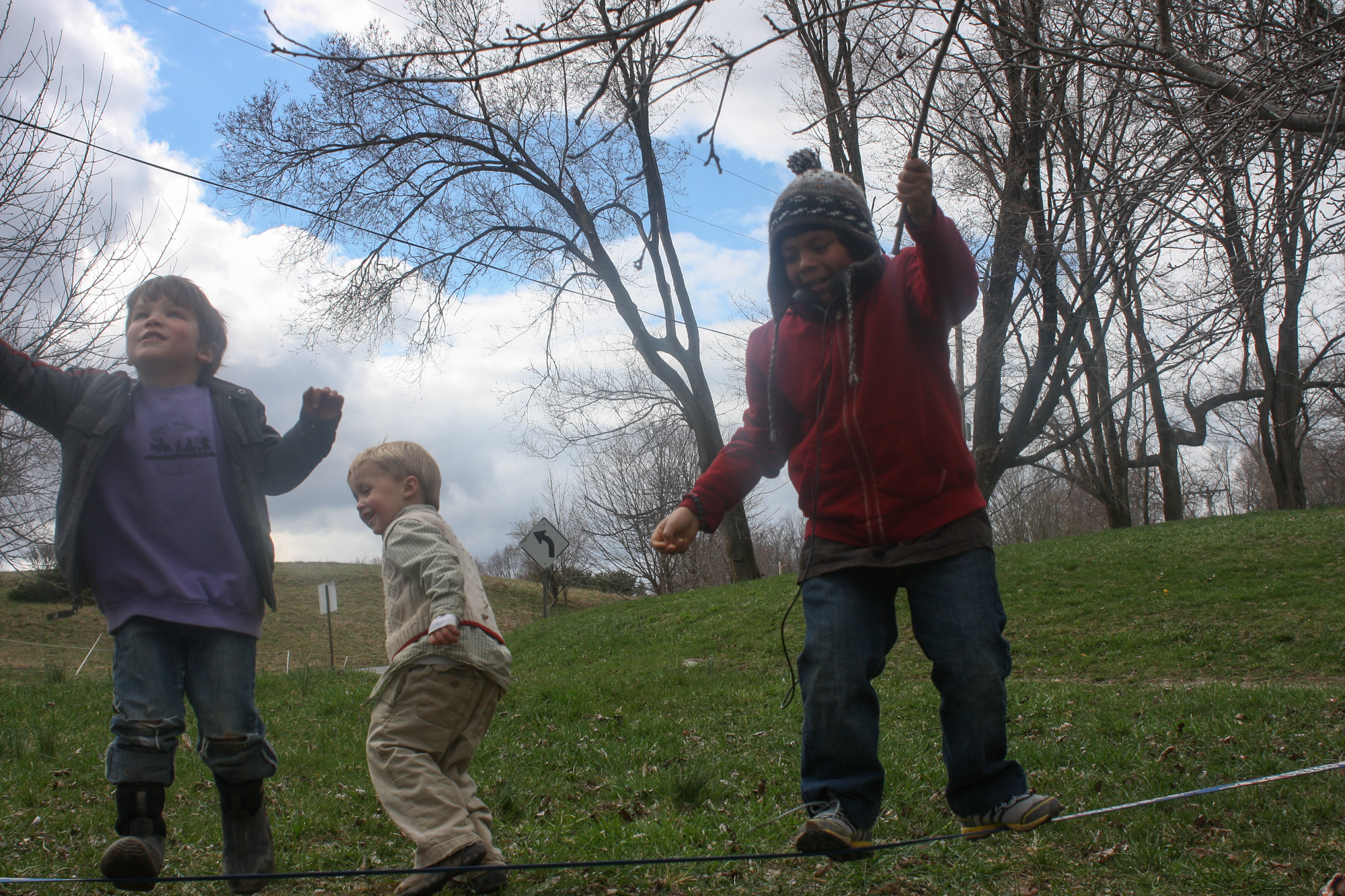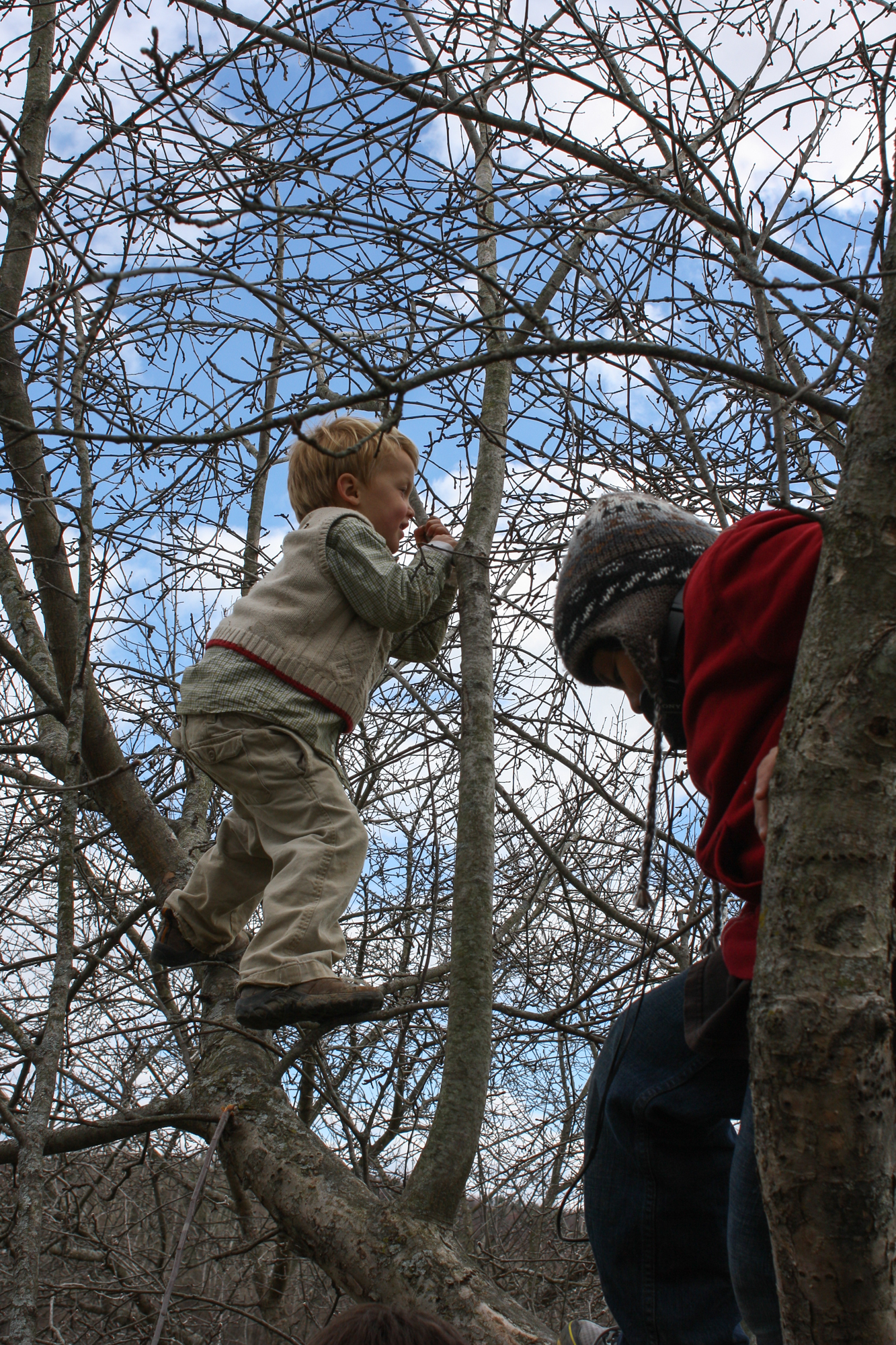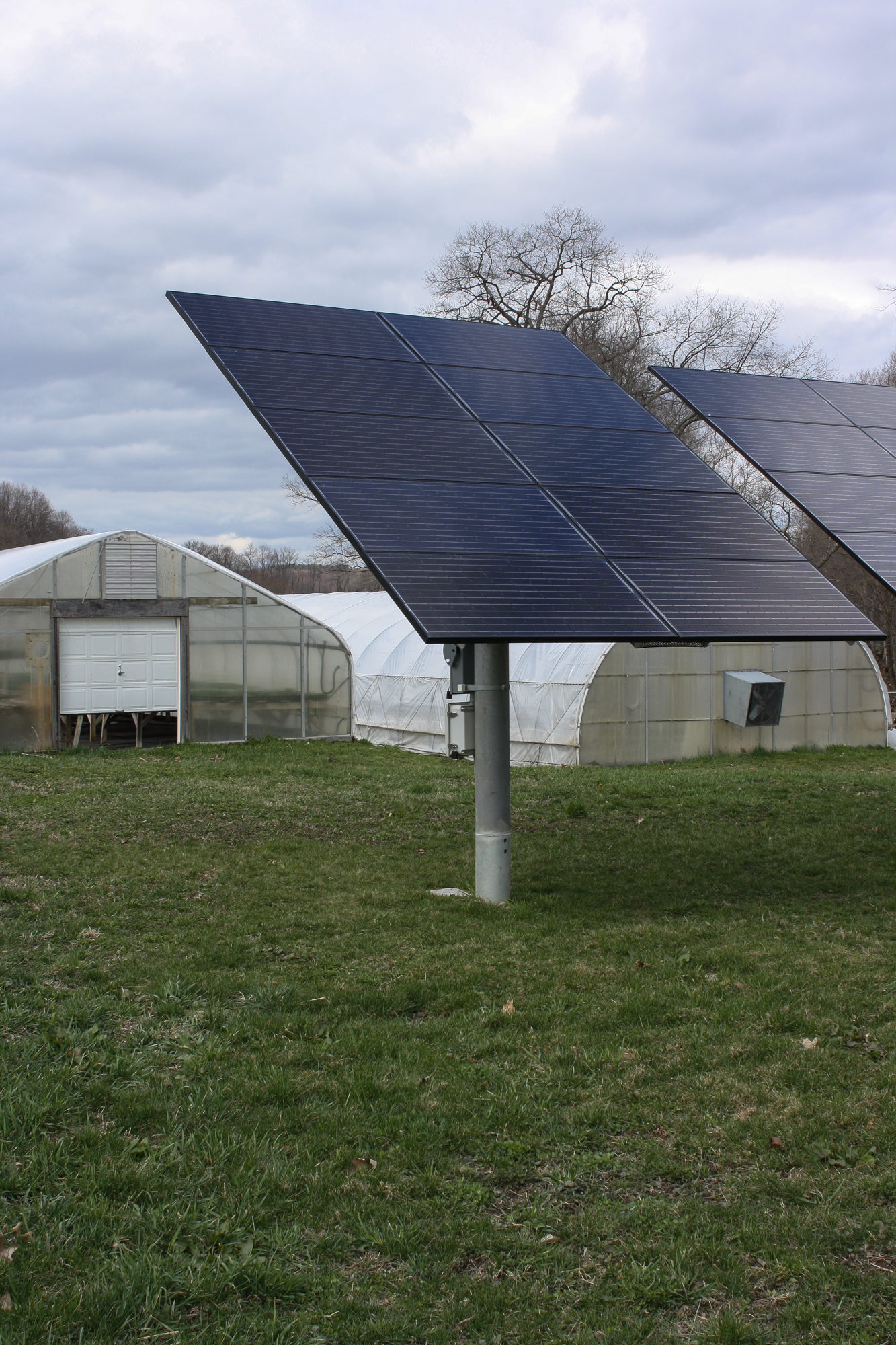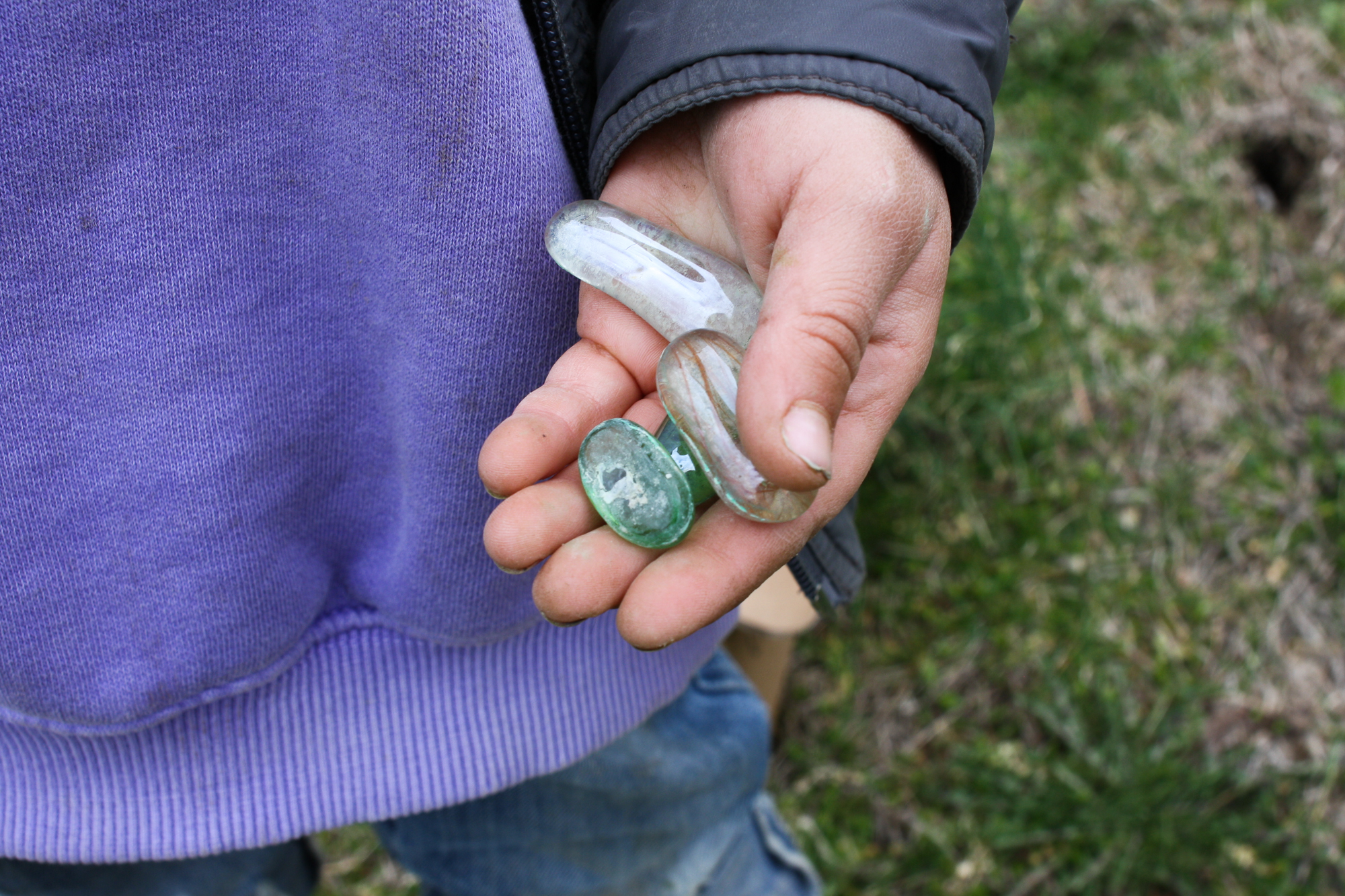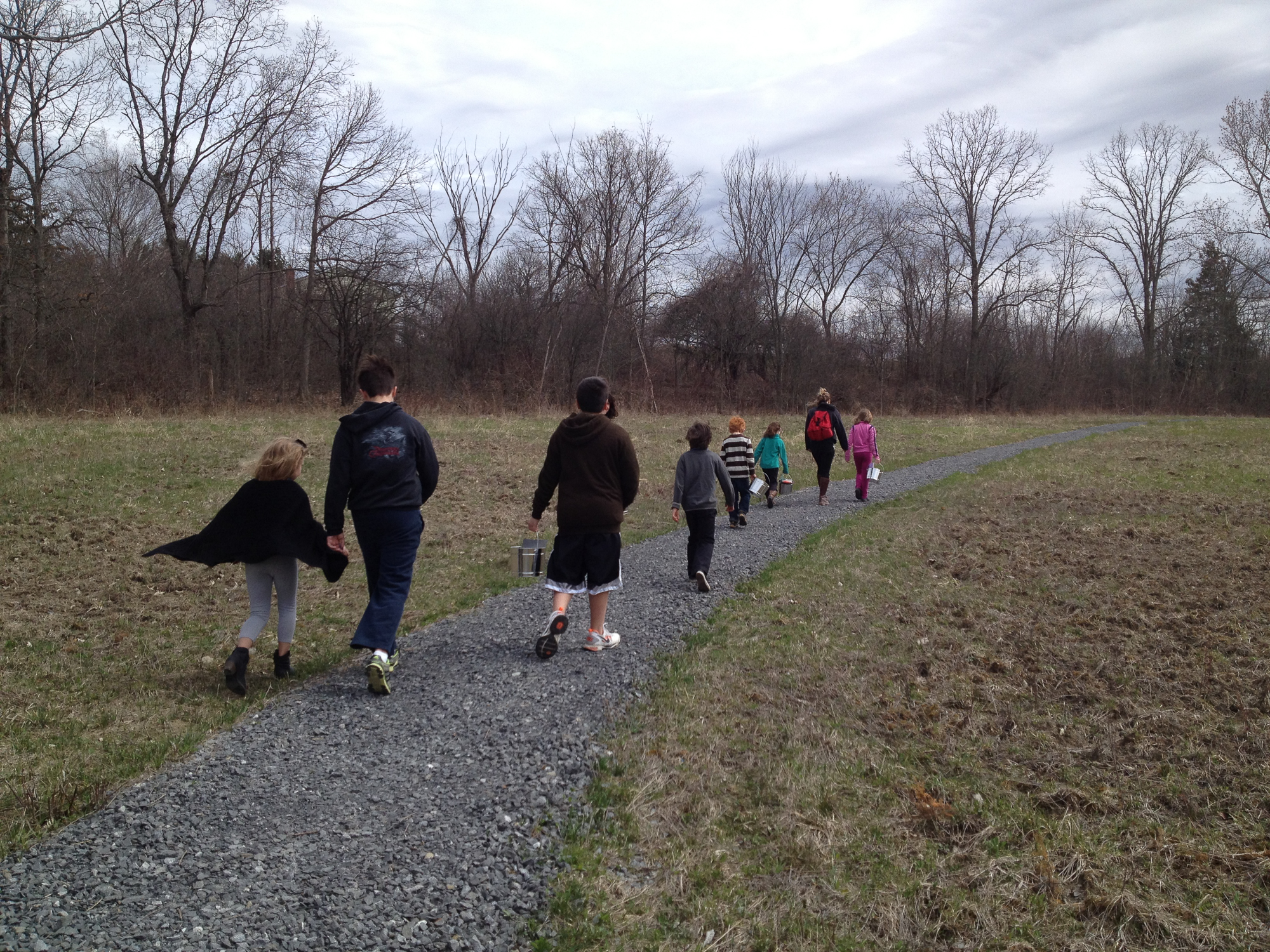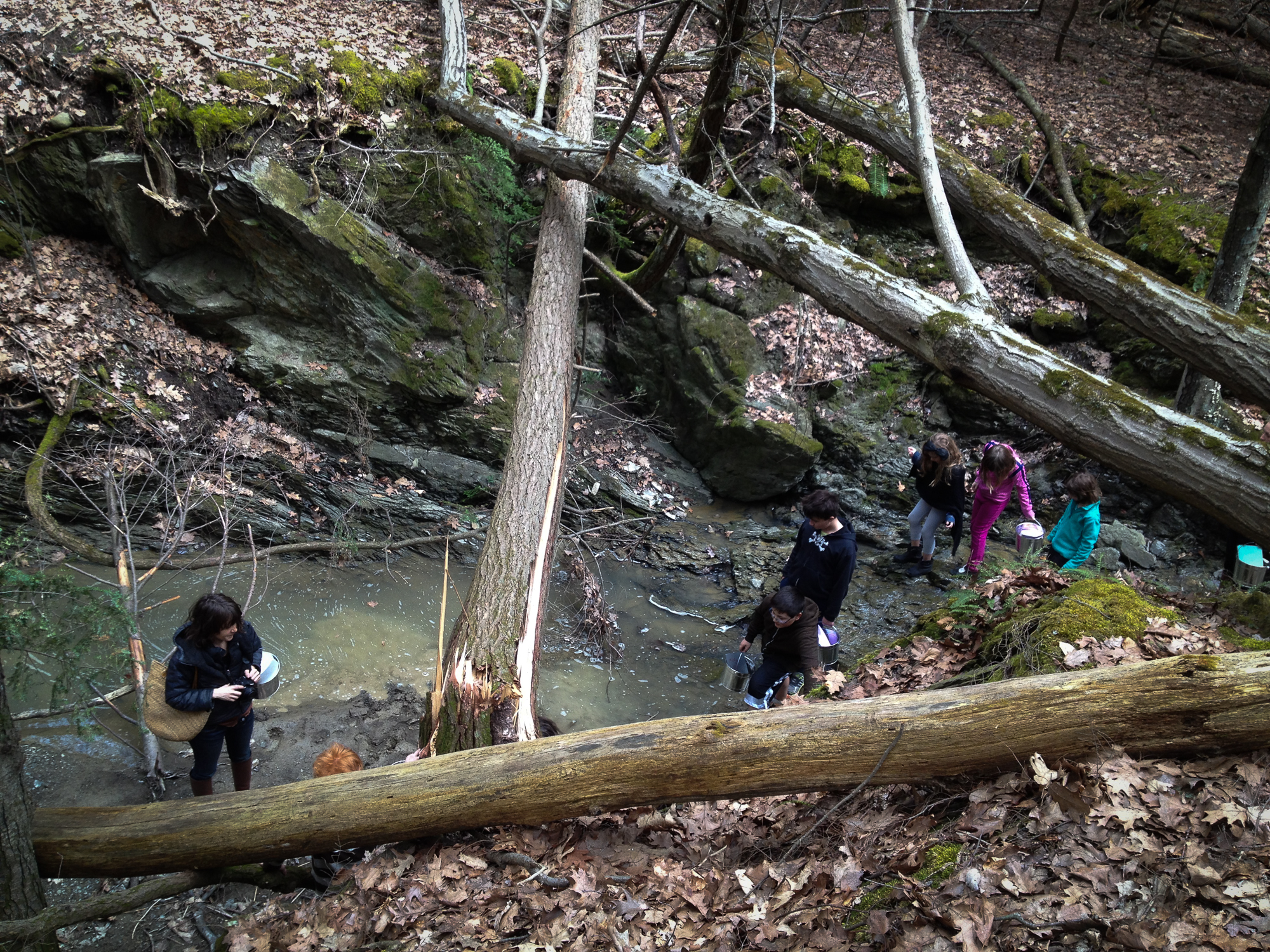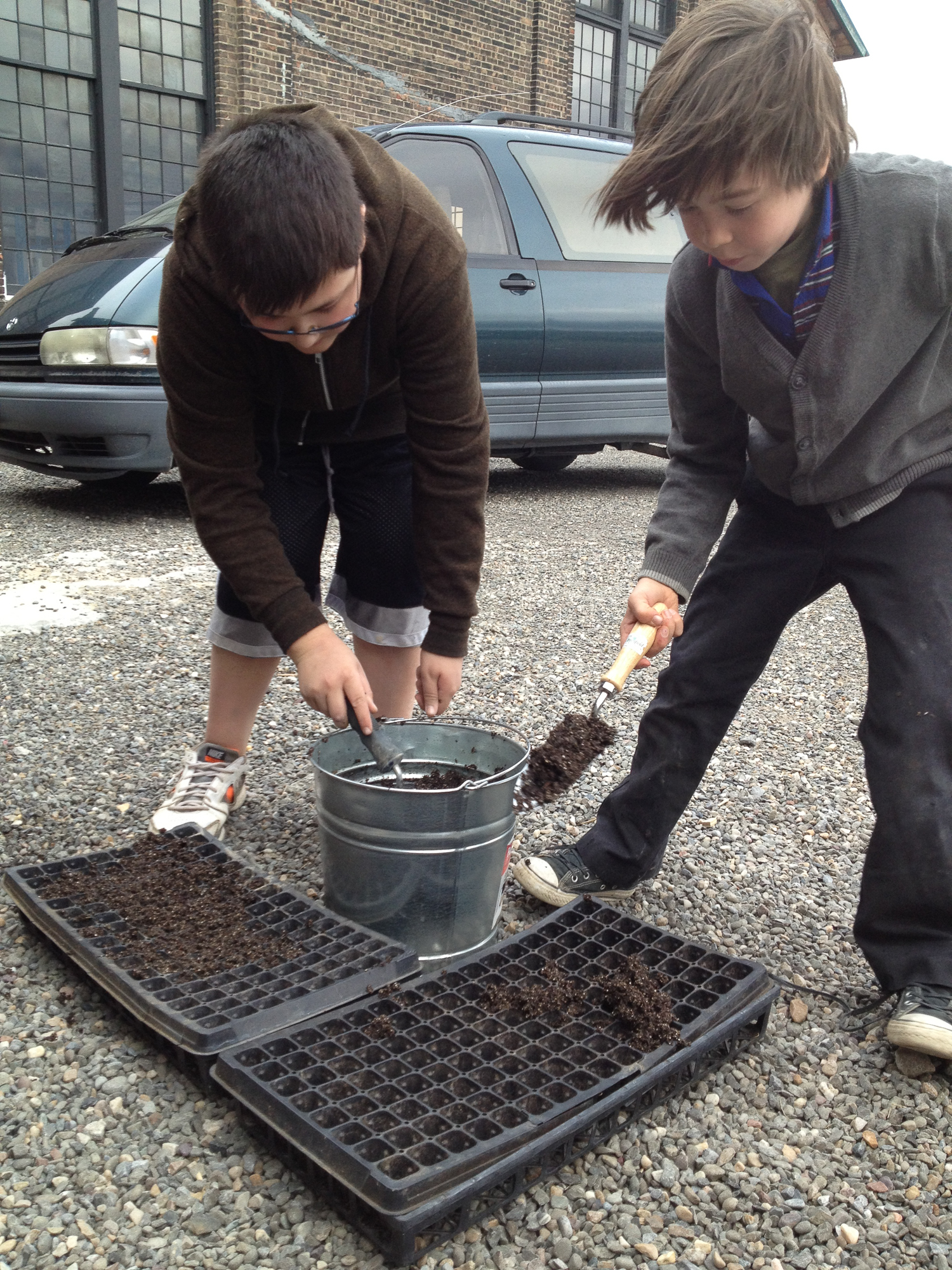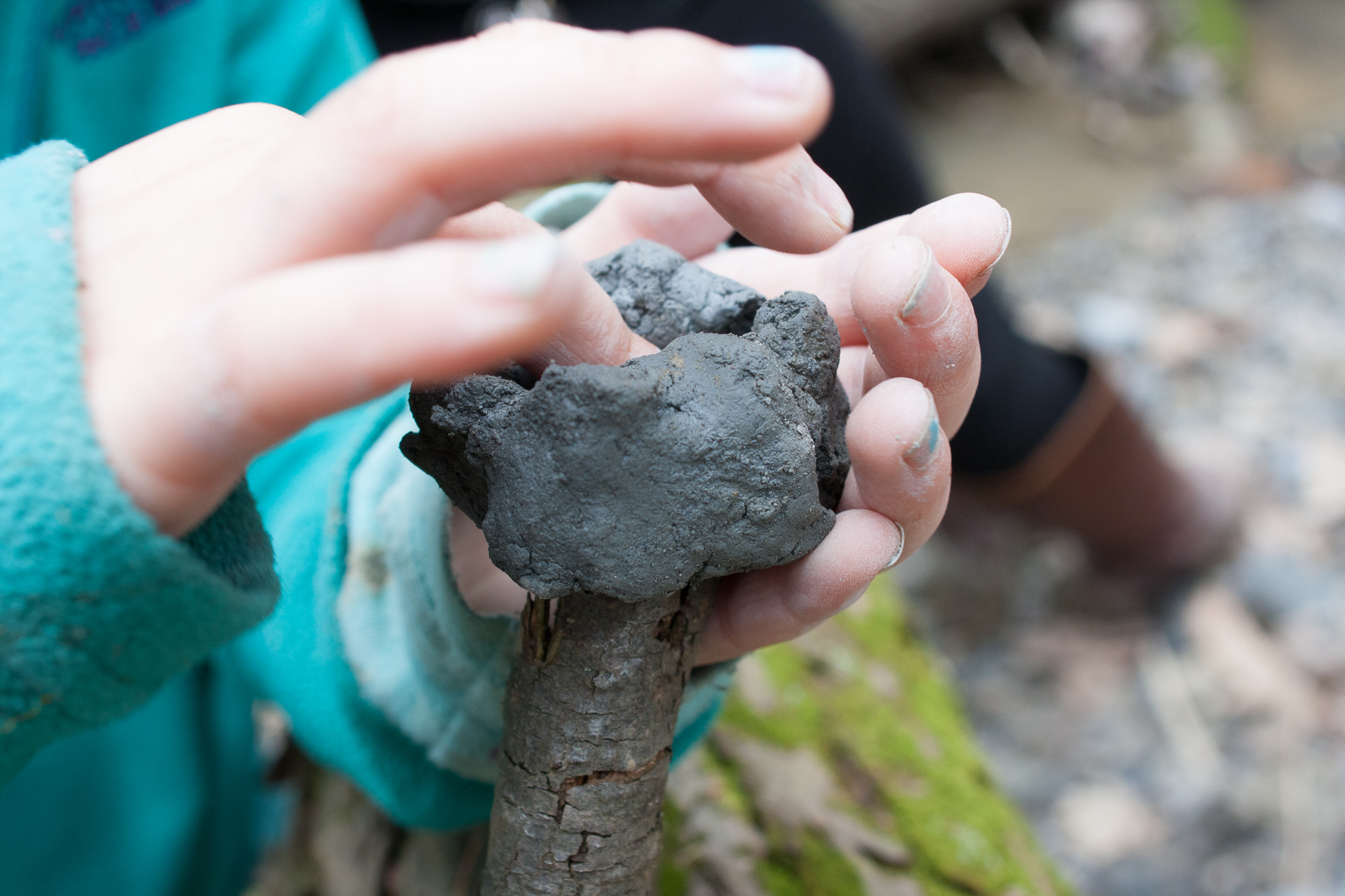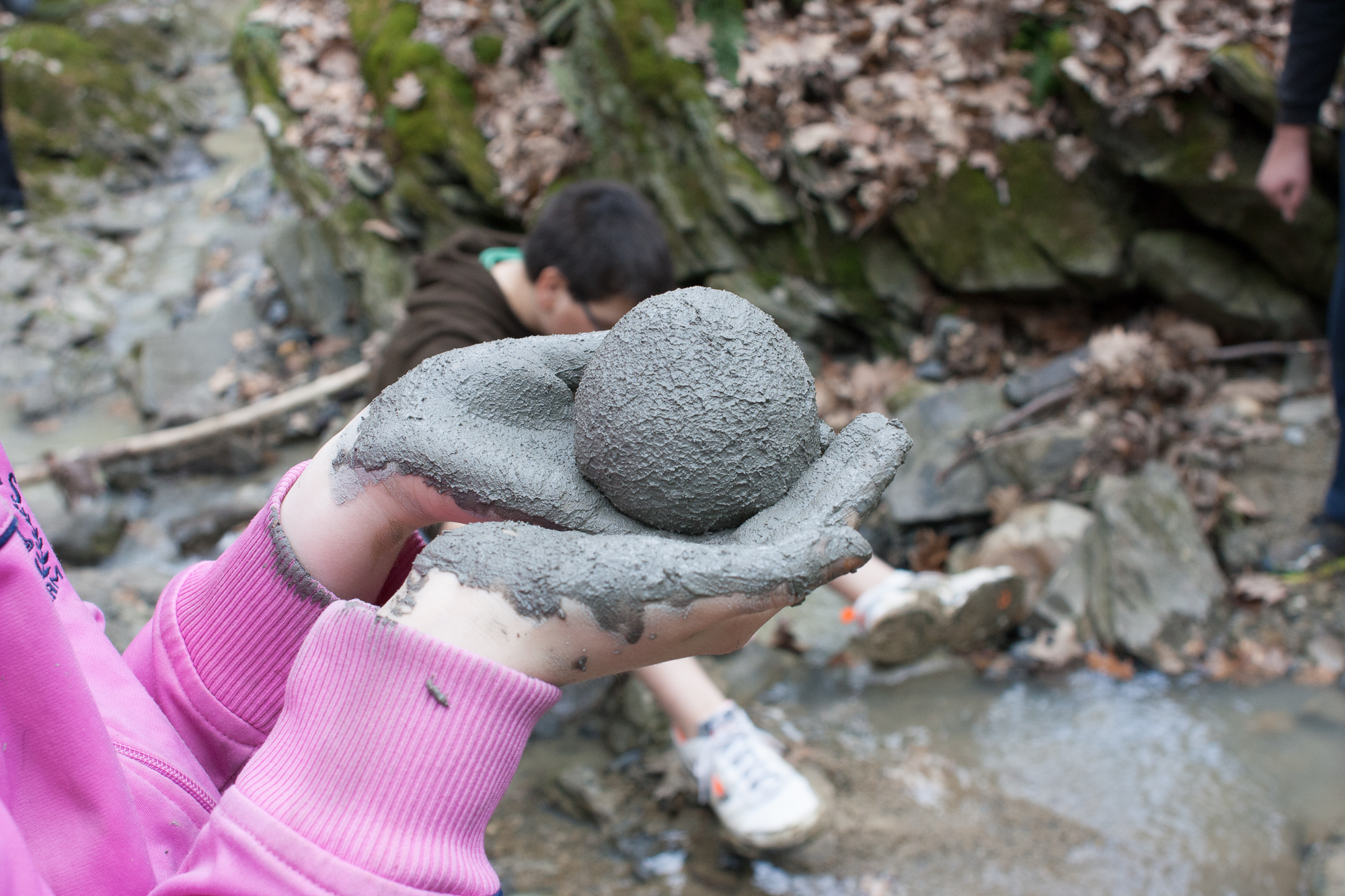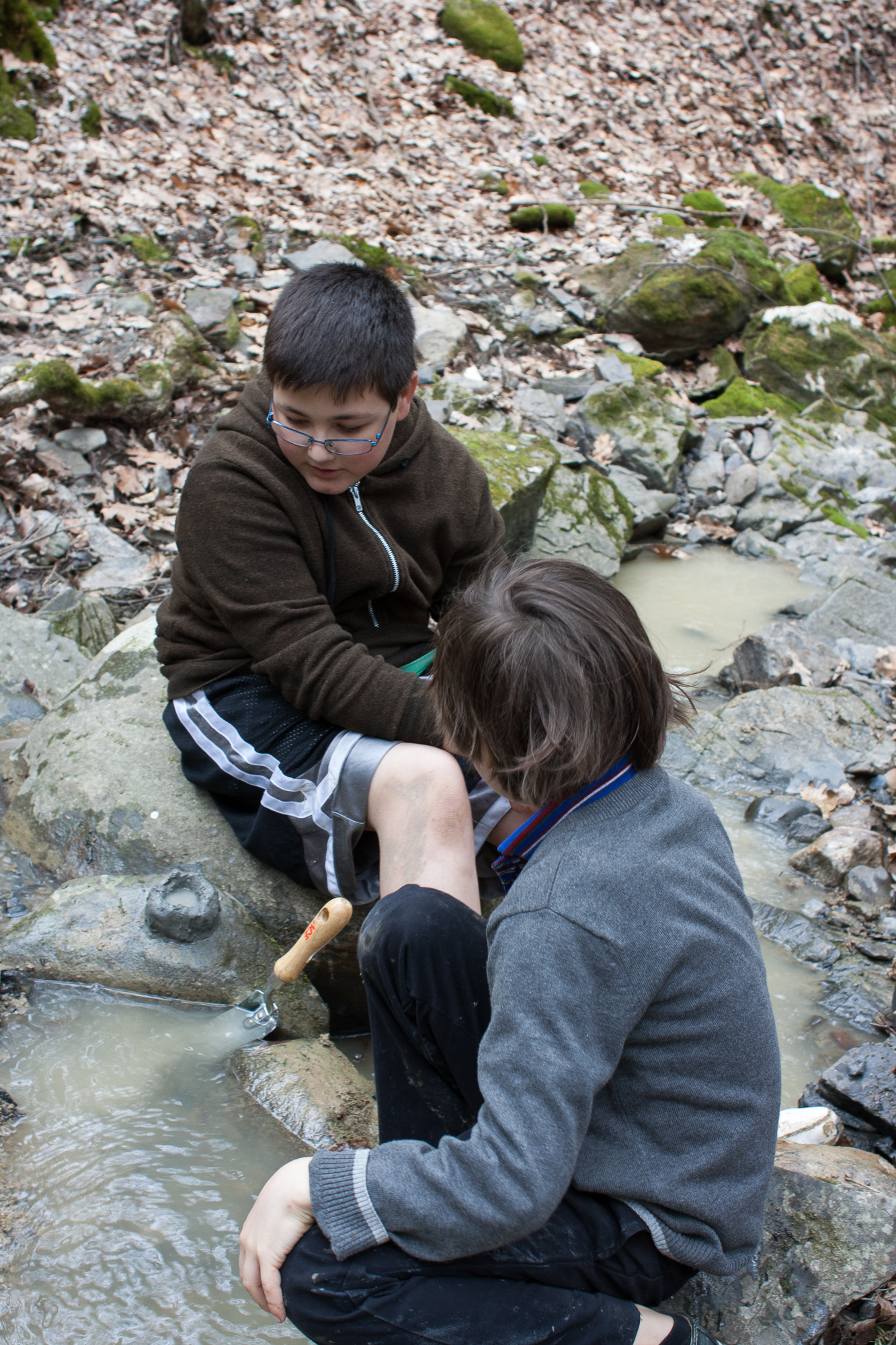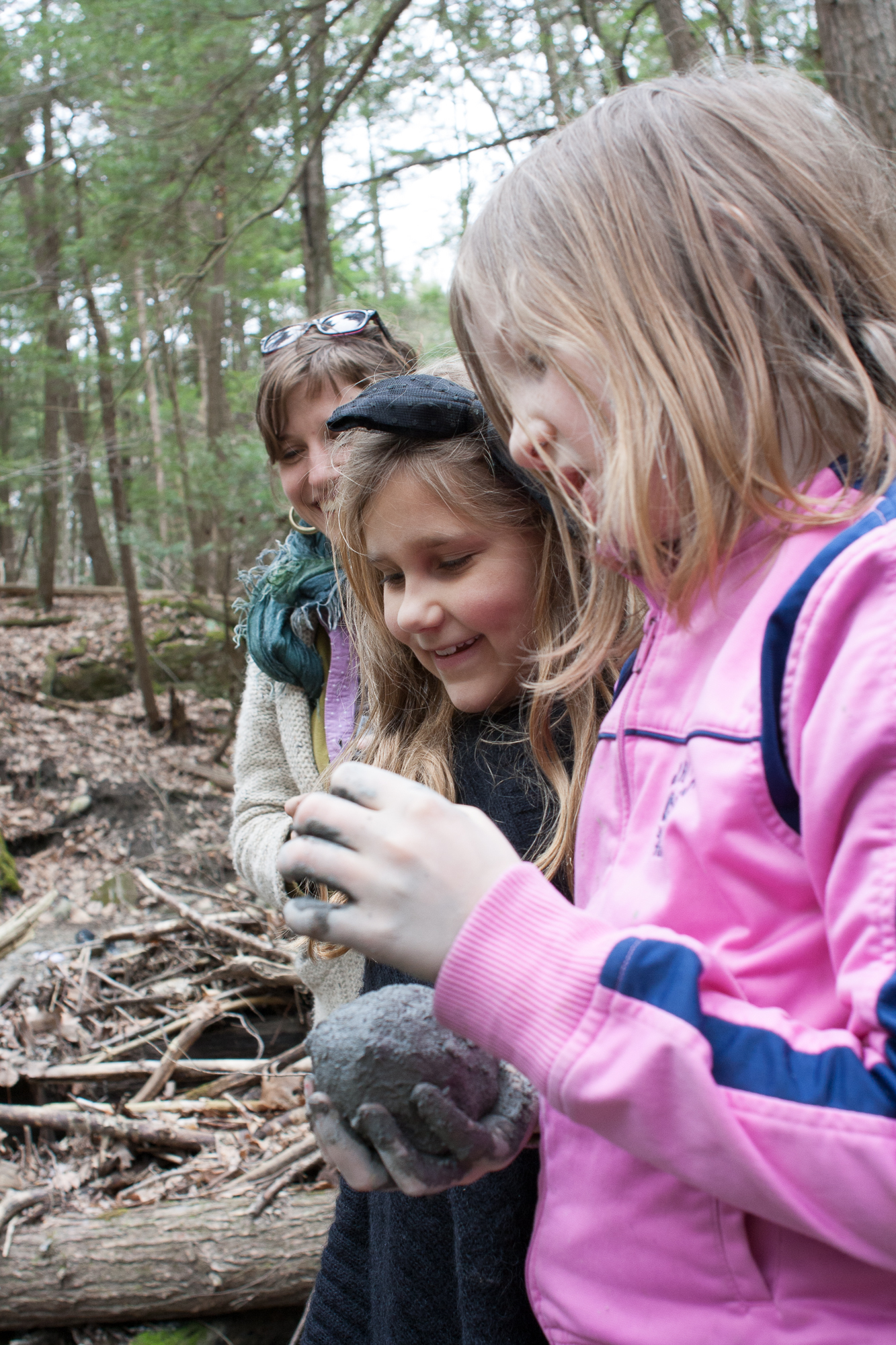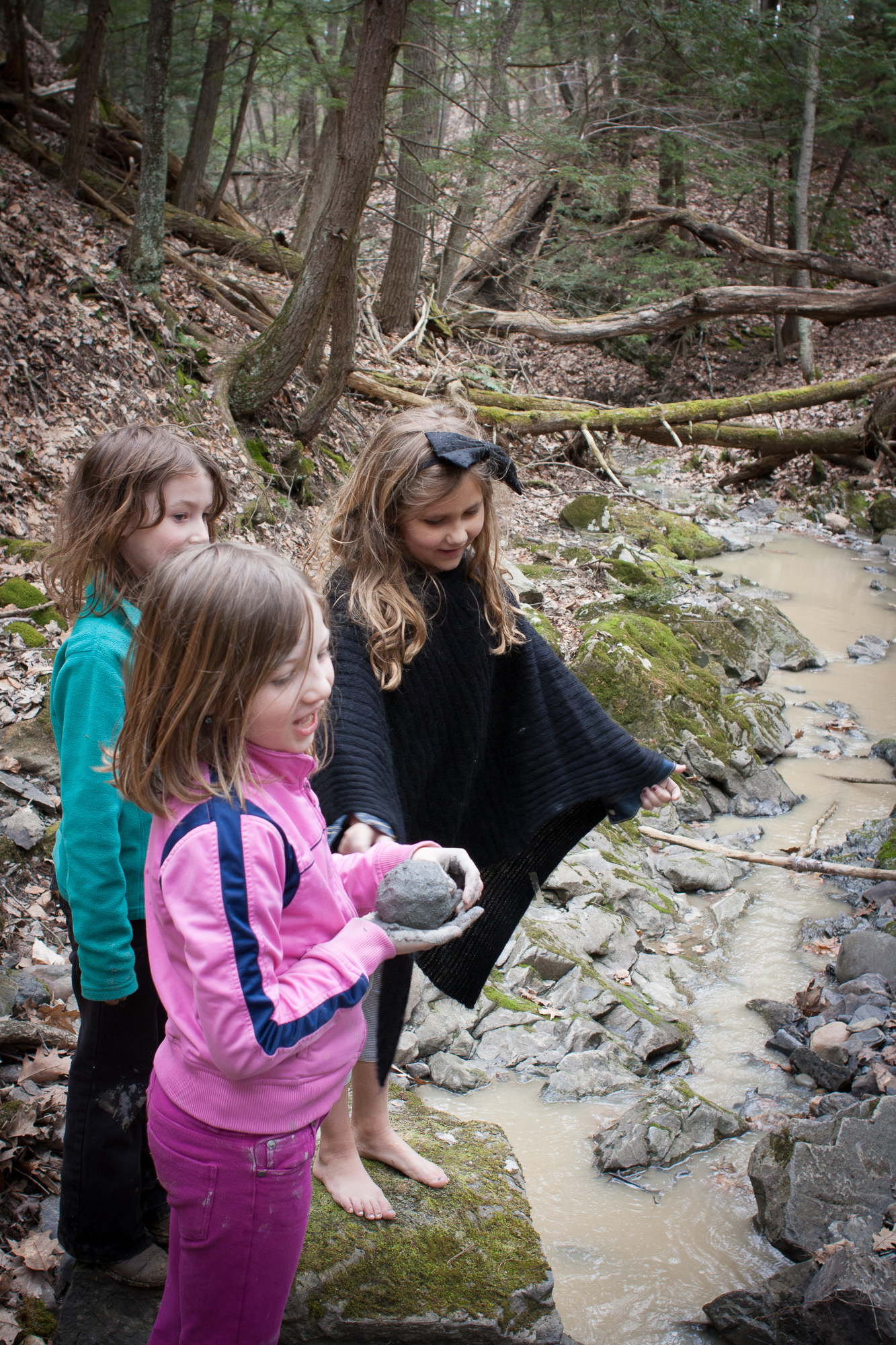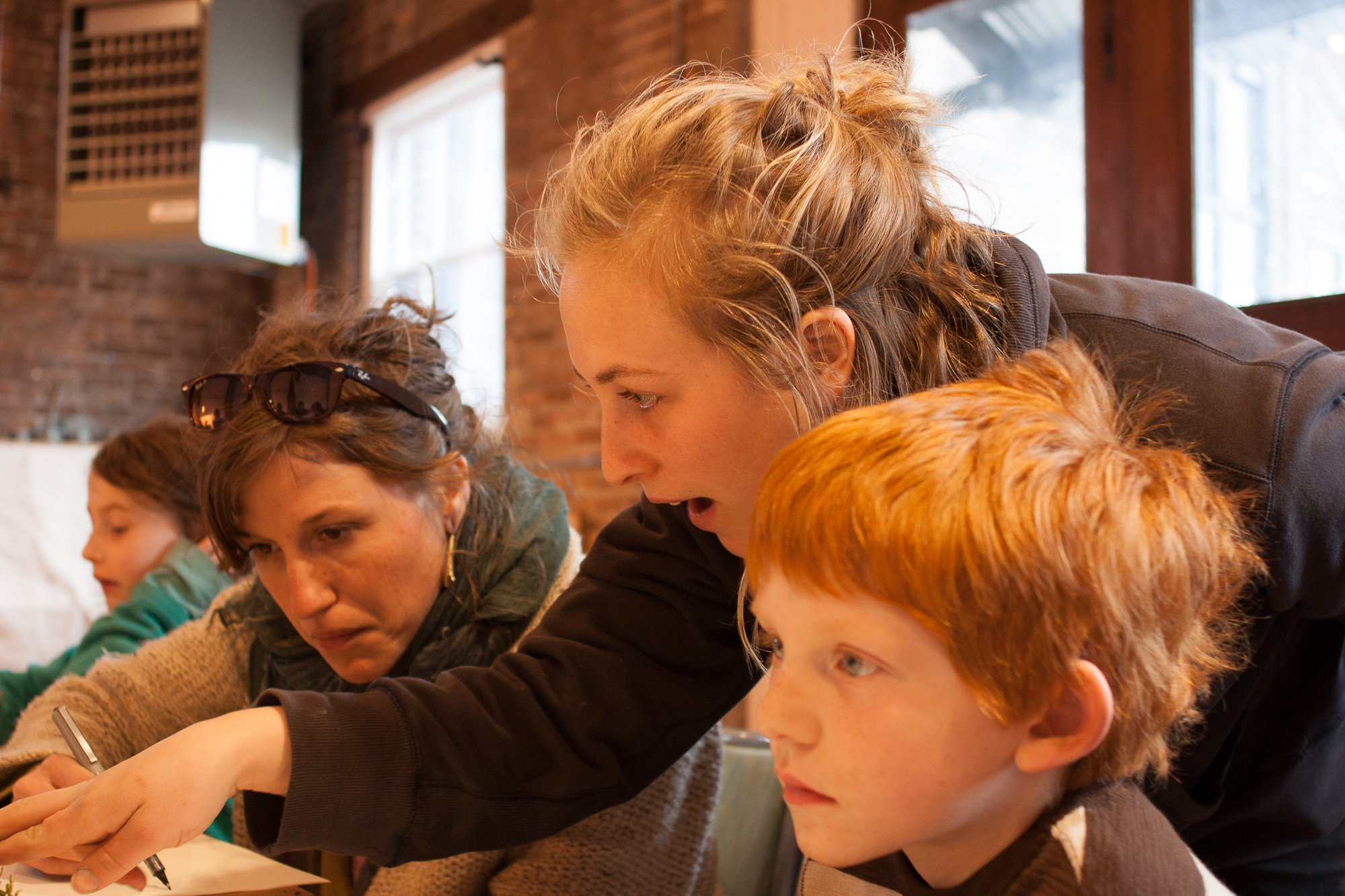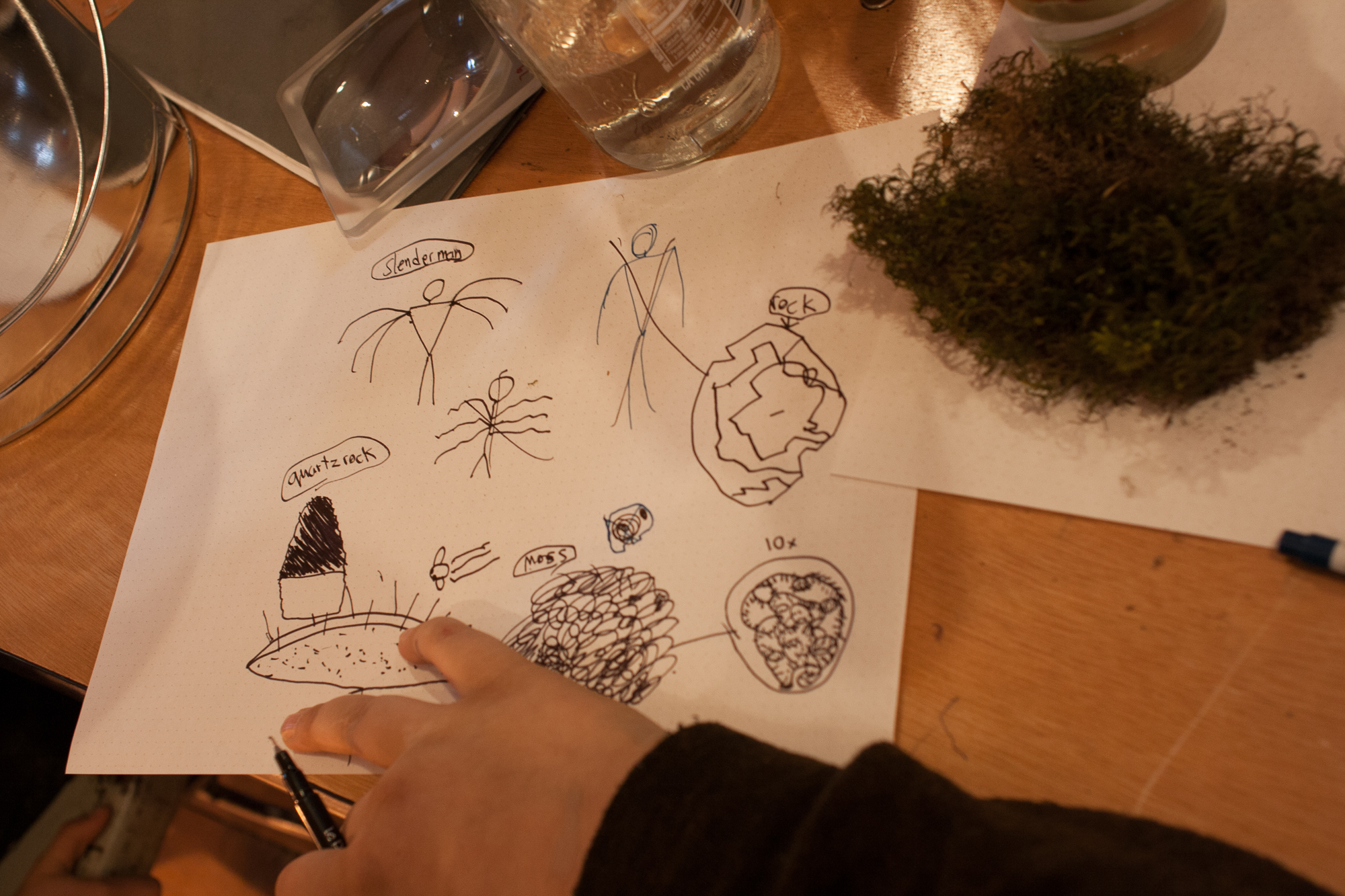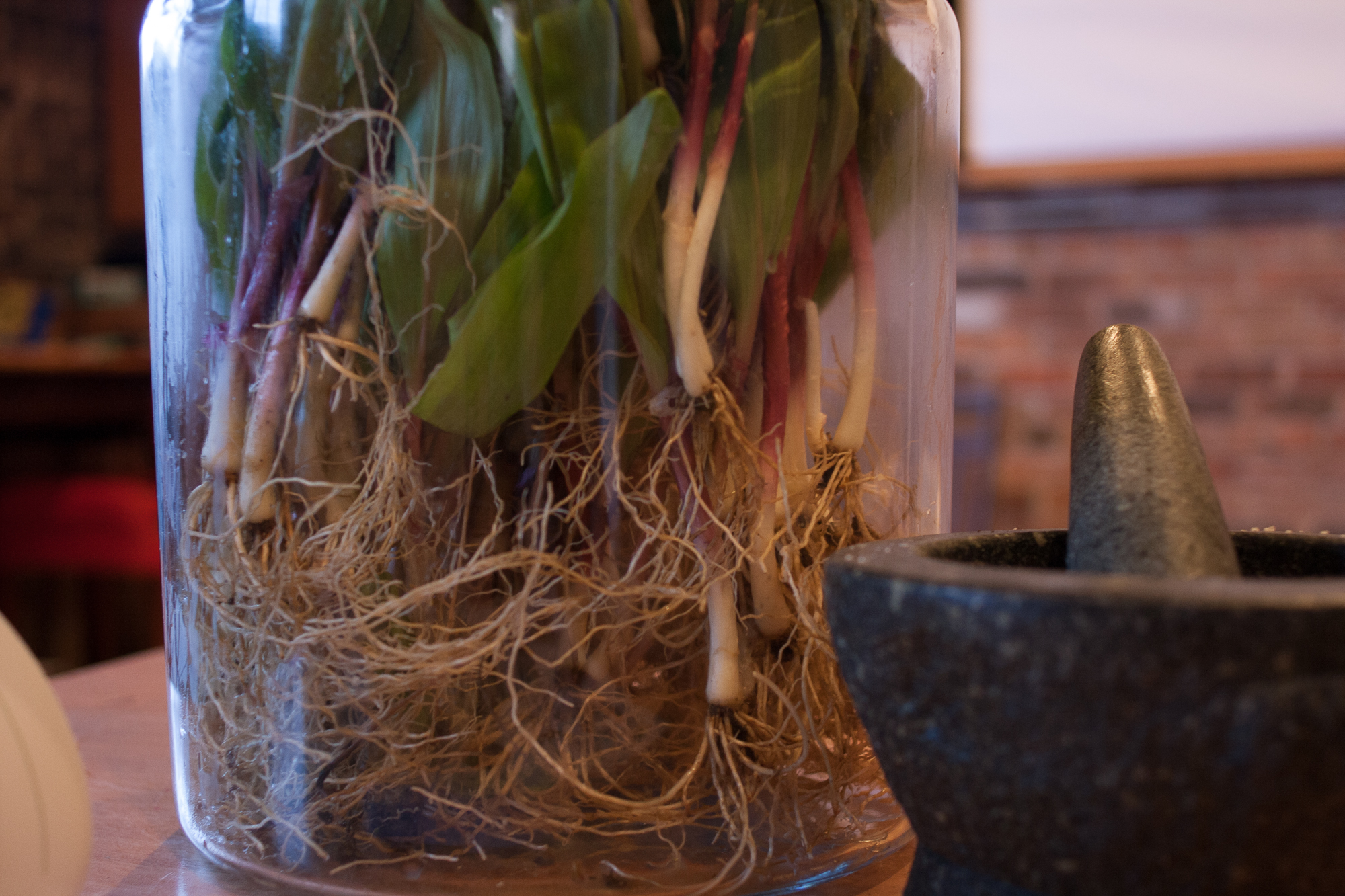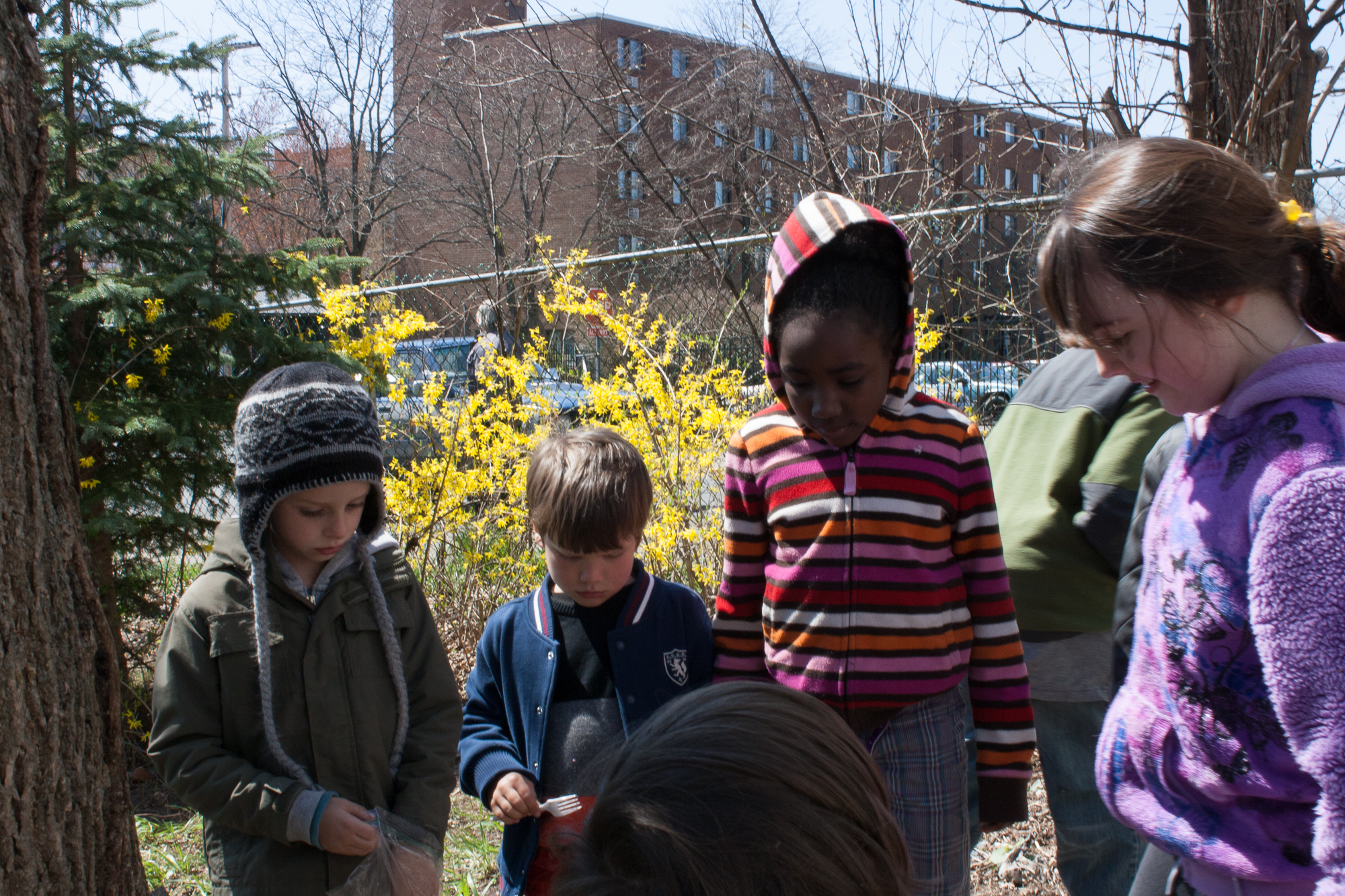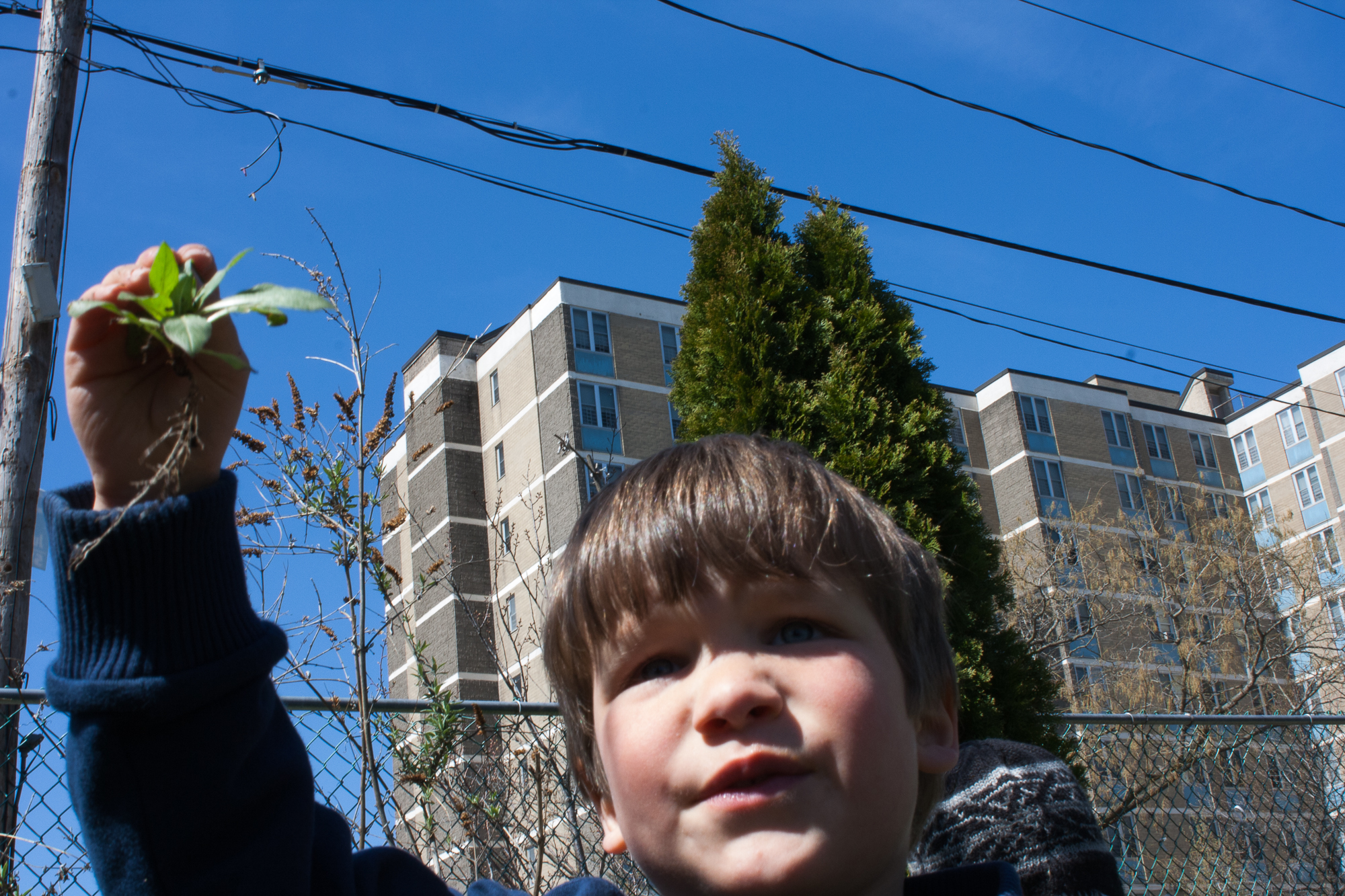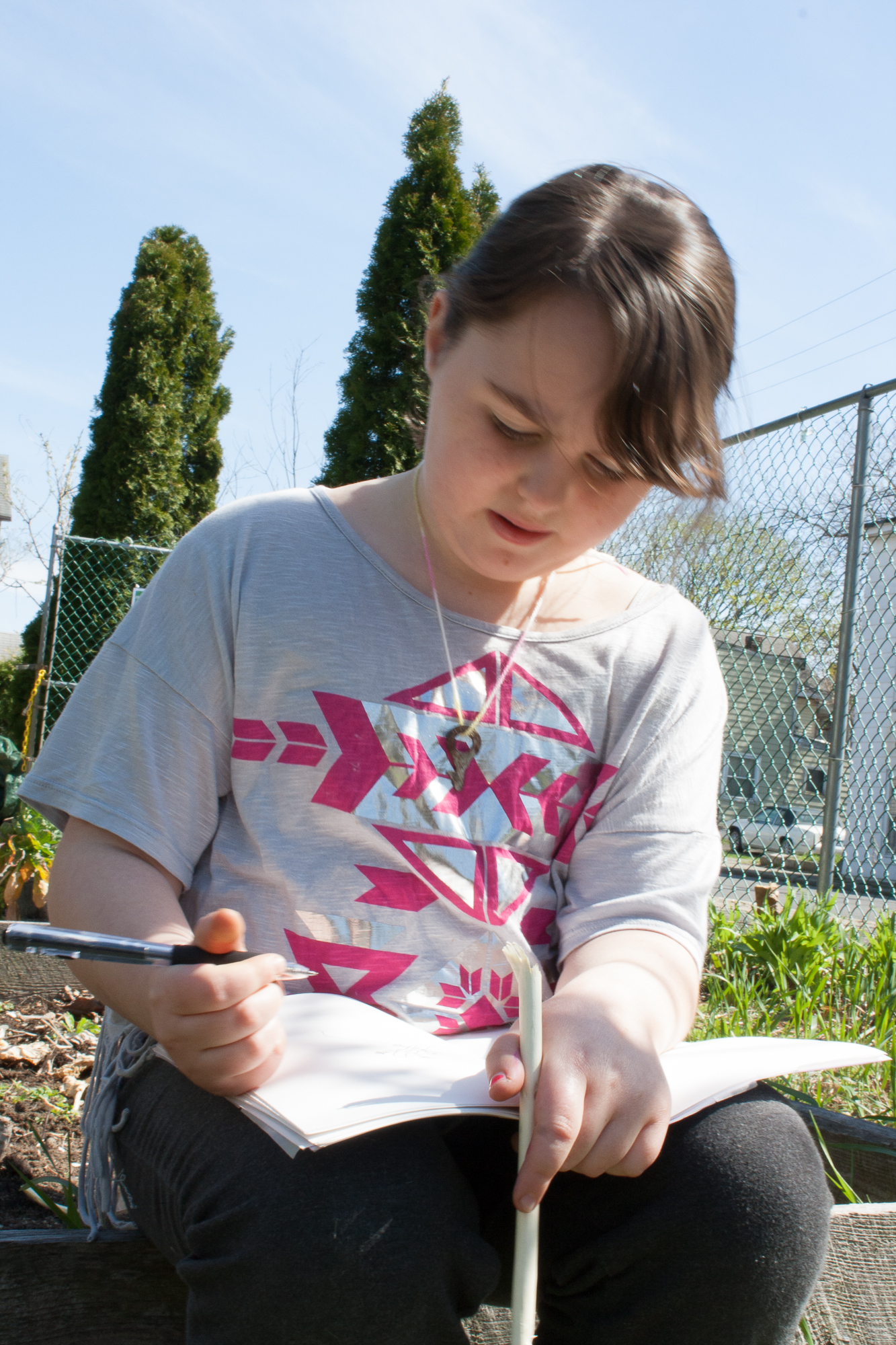LENS, FORK & TROWEL
SOIL SCIENCE, AGROECOLOGY, AND CULINARY ARTISTRY | Spring 2013
Equipped with gardening and cooking tools, children will engage in a sensory and scientific exploration of the systems that produce the food we eat. Journeys to local farms, forests and waterways will let children observe, plant, harvest and cook. We begin our season by working the thawing soil, hunting for spring ephemerals, and sowing our earliest seeds. As spring progresses, we experience the miraculous transformation of seed to plant, and of empty fields to lush crops. From the fields, we’ll enter our on-site kitchen laboratory, which drives our investigation of ecology and gives it an immediate, delicious purpose.
From examining the microbes and insects living in our soil to crafting meals, in this class we explored what a food system is and the roles we play within it by connecting and working directly with each element. Children became documenters of their observations and explorations, wielding field journals along with their spades. As we worked alongside expert chefs, farmers and food-crafters we began to experience the kitchen as a bridge between cultures, spanning and connecting the local with the global. Vegetables raised in our own soil became a part of a recipe that comes from Bangladesh, Morocco, or Japan - connecting ideas and tastes from across the world while expanding our understanding of the ecosystems and cultures around us. Within our own kitchen the collaborative and convivial atmosphere of creating food together invites children to acquire proficiency in whichever aspect most draws them. Exploring the complex nature of smell, taste, texture, and temperature, young chefs and growers were supported to make connections between their own experiments and discoveries. Our work together will focused on research and inquiry into many questions:
Botany: What are the natural forces that produce a healthy plant? Why does a plant have certain qualities, what makes a plant survive, how does it nourish us? What roles does it play in its ecosystem? What is a plant community?
Agriculture: What kind of human and mechanical power goes into producing the food we eat? What impact do our agricultural practices have on our environment? How do different people and cultures grow food? What is it like to be a farmer?
Biology: Can food be medicine? What is medicine to the ecosystem? What do bodies need in order to thrive? What are the different organisms that live in our soil and what are their roles? What is “good” bacteria?
Culinary Arts & Sciences: What happens when we knead dough? What do eggs do in a recipe? What happens to the textures of sugars and proteins under different applications? What is it like to be a chef? A baker? A cheesemaker?
In this workshop children prepared, seasoned and present meals for themselves as well as the public, built container gardens, tended and cultivated plants growing at Kite’s Nest, visited farms and grow produce in plots, conducted research and record observations. Day trips included visits to some of our friends and local experts, working in their own ecosystems, including Sparrowbush Farm, Chaseholm Farm, Hudson Community Garden, Turtle Tree Seeds, Bonfiglio and Bread, Camphill Bakery, Letterbox Farm Collective, Sam the Bee Man, the Greenhorns, and Good Fight Herb Company.


